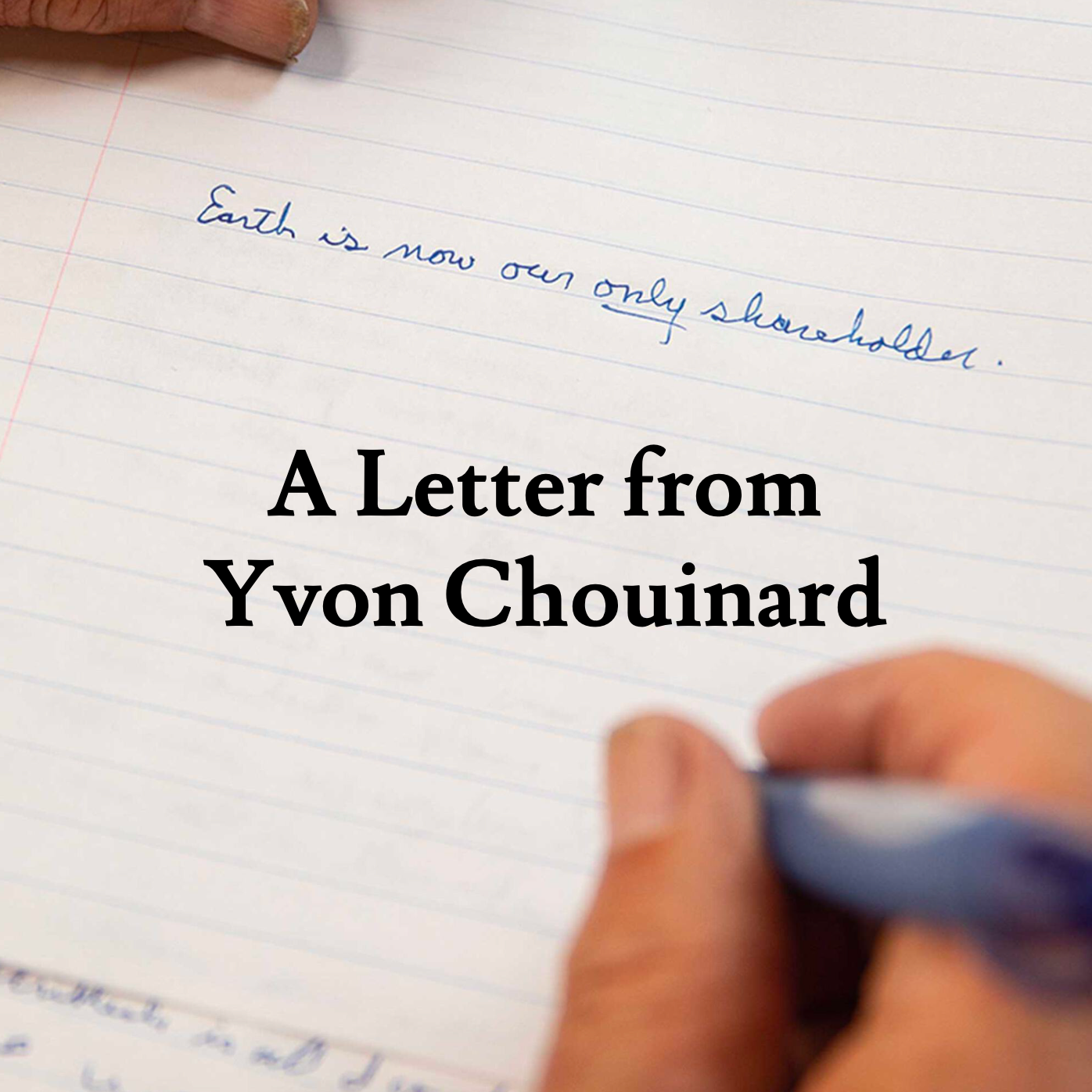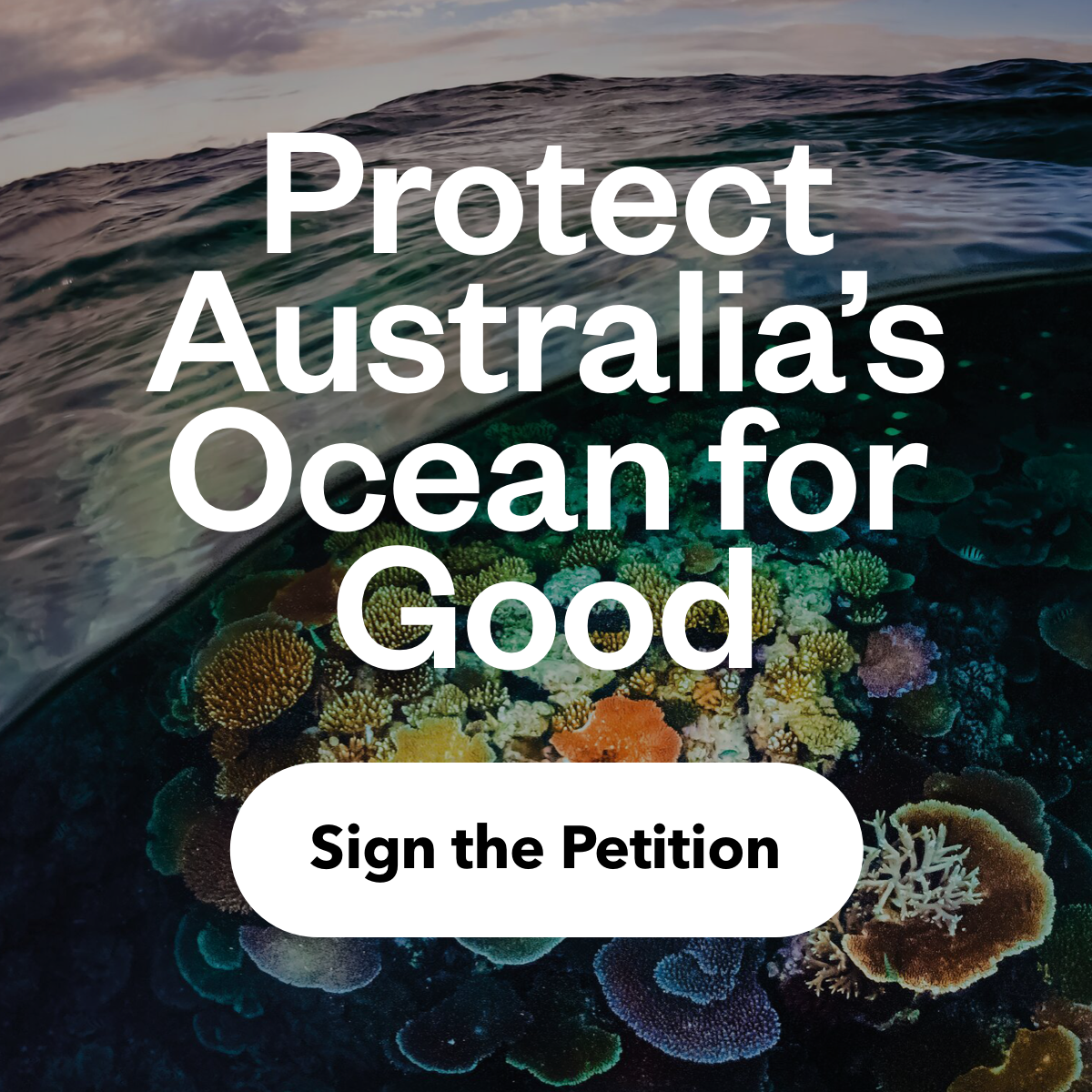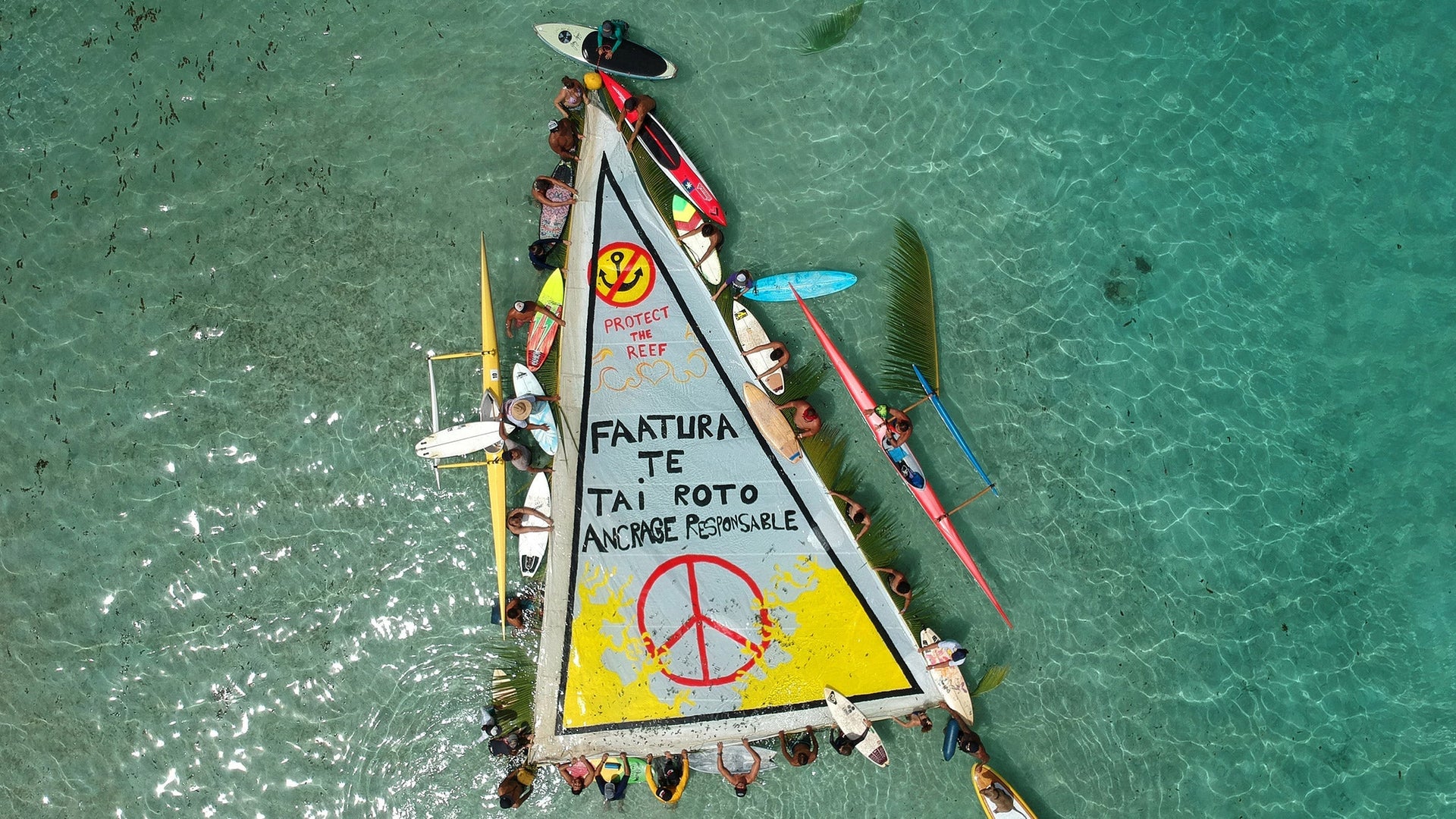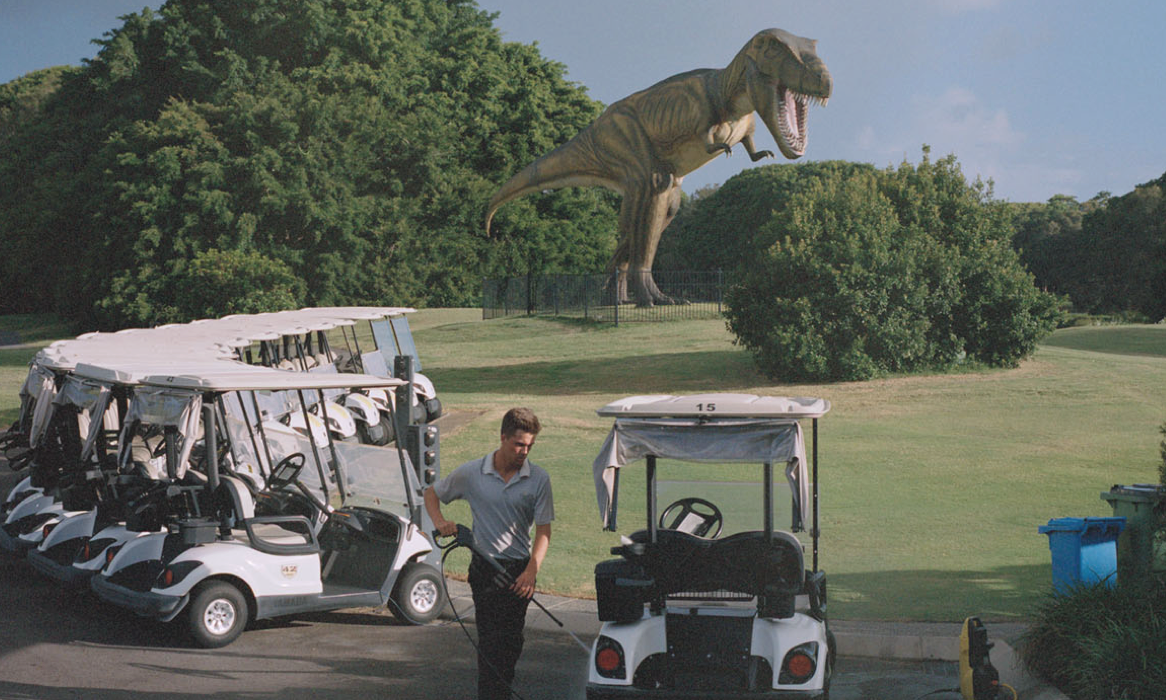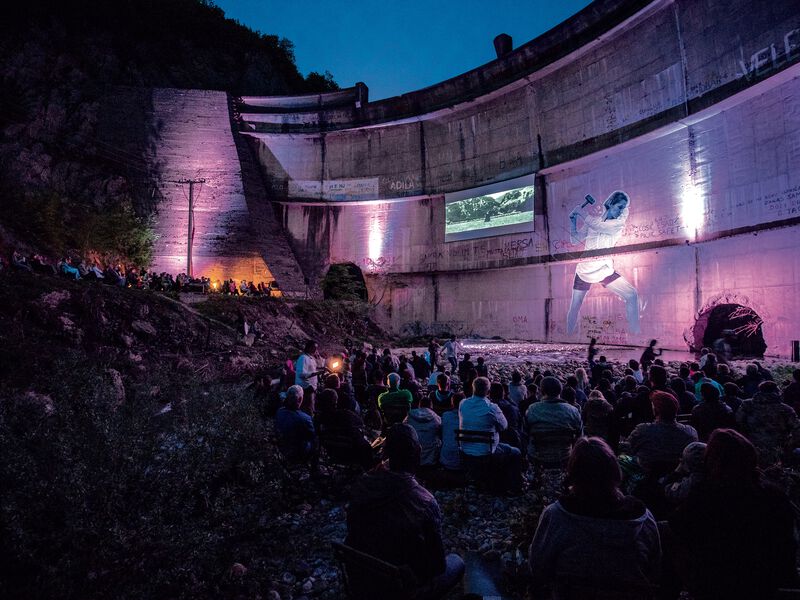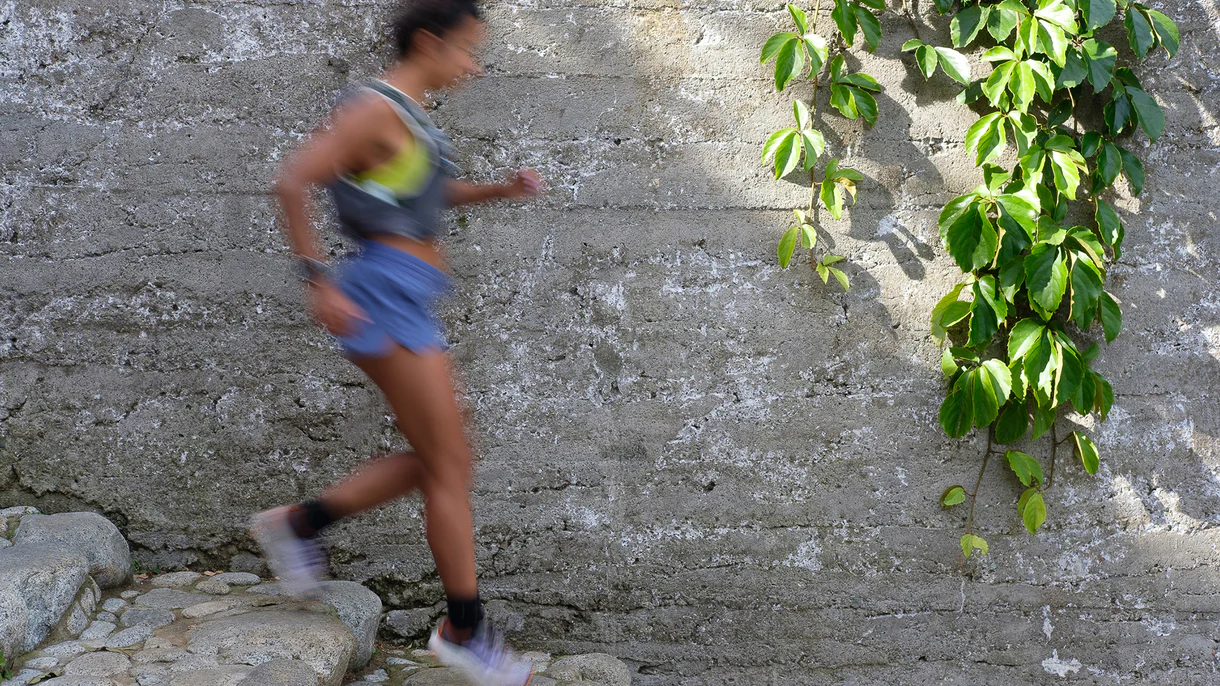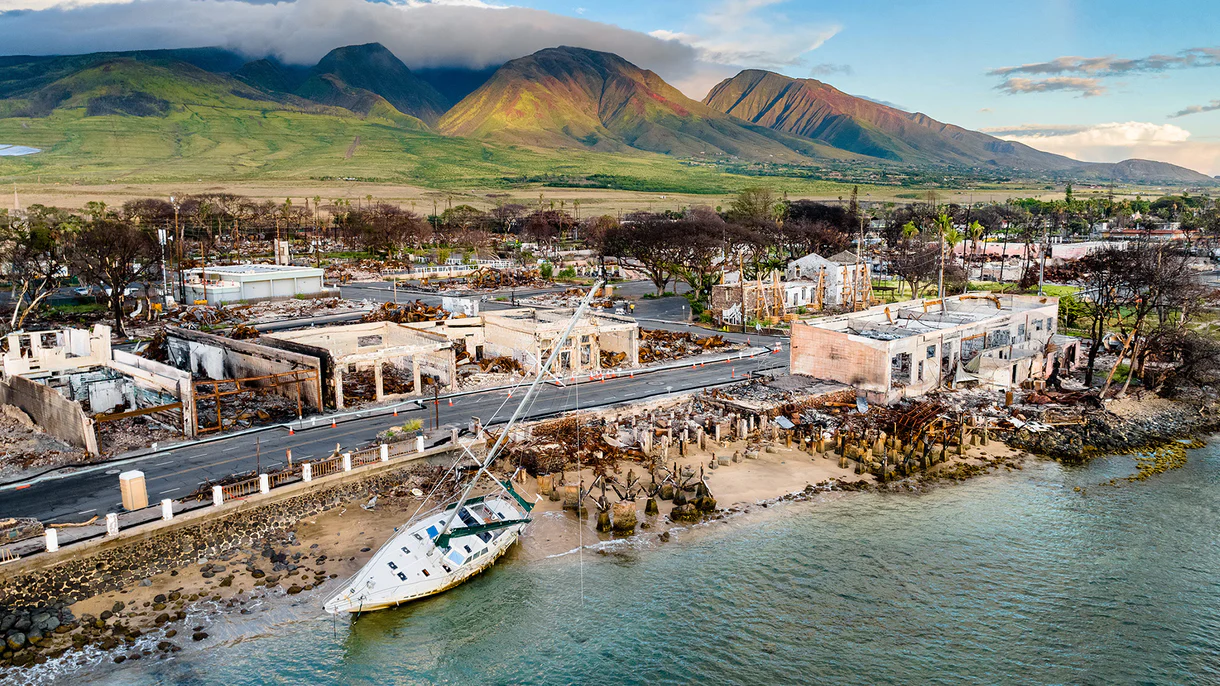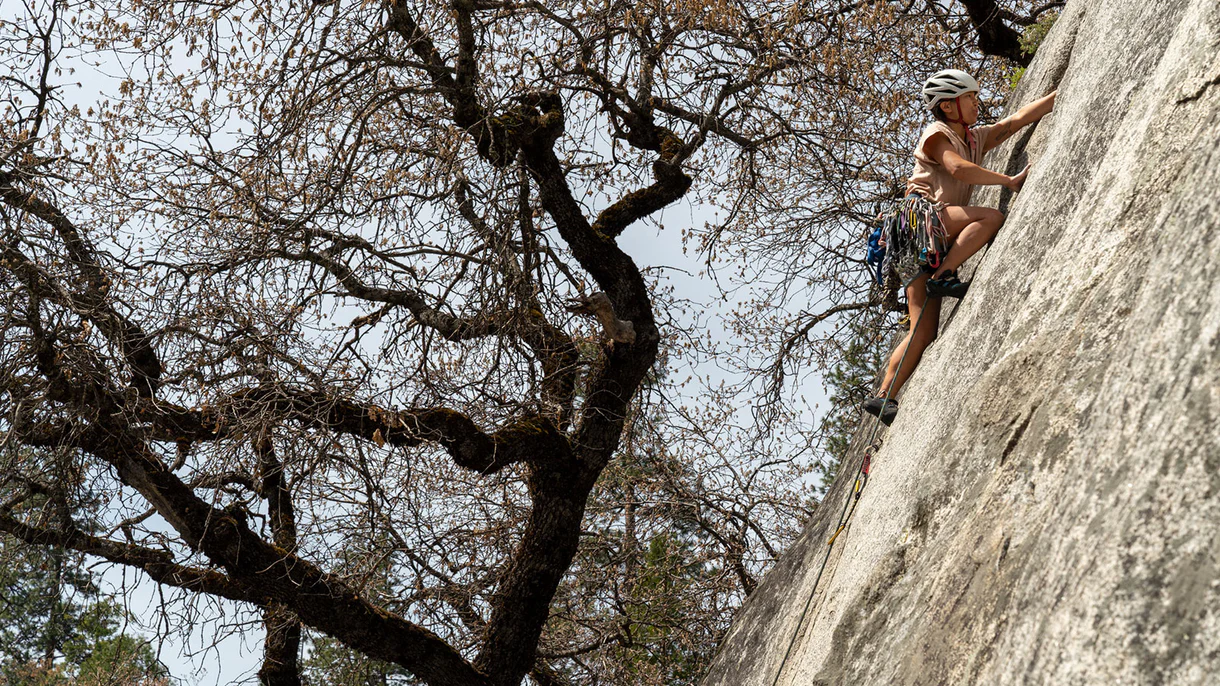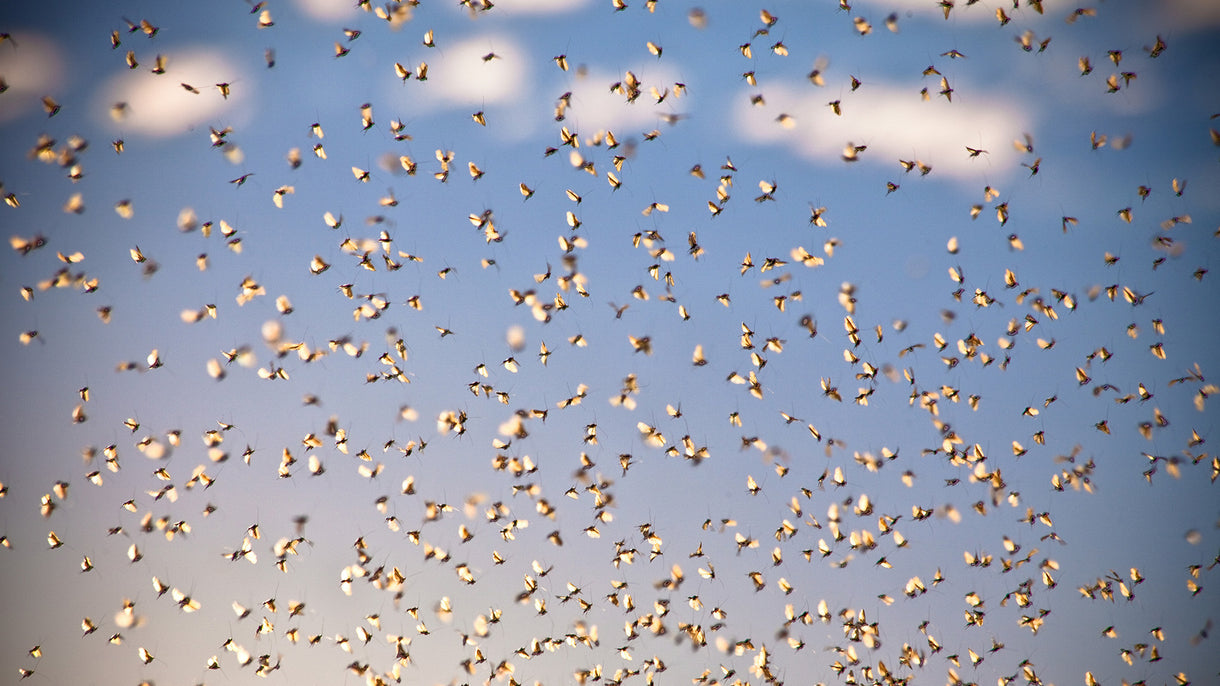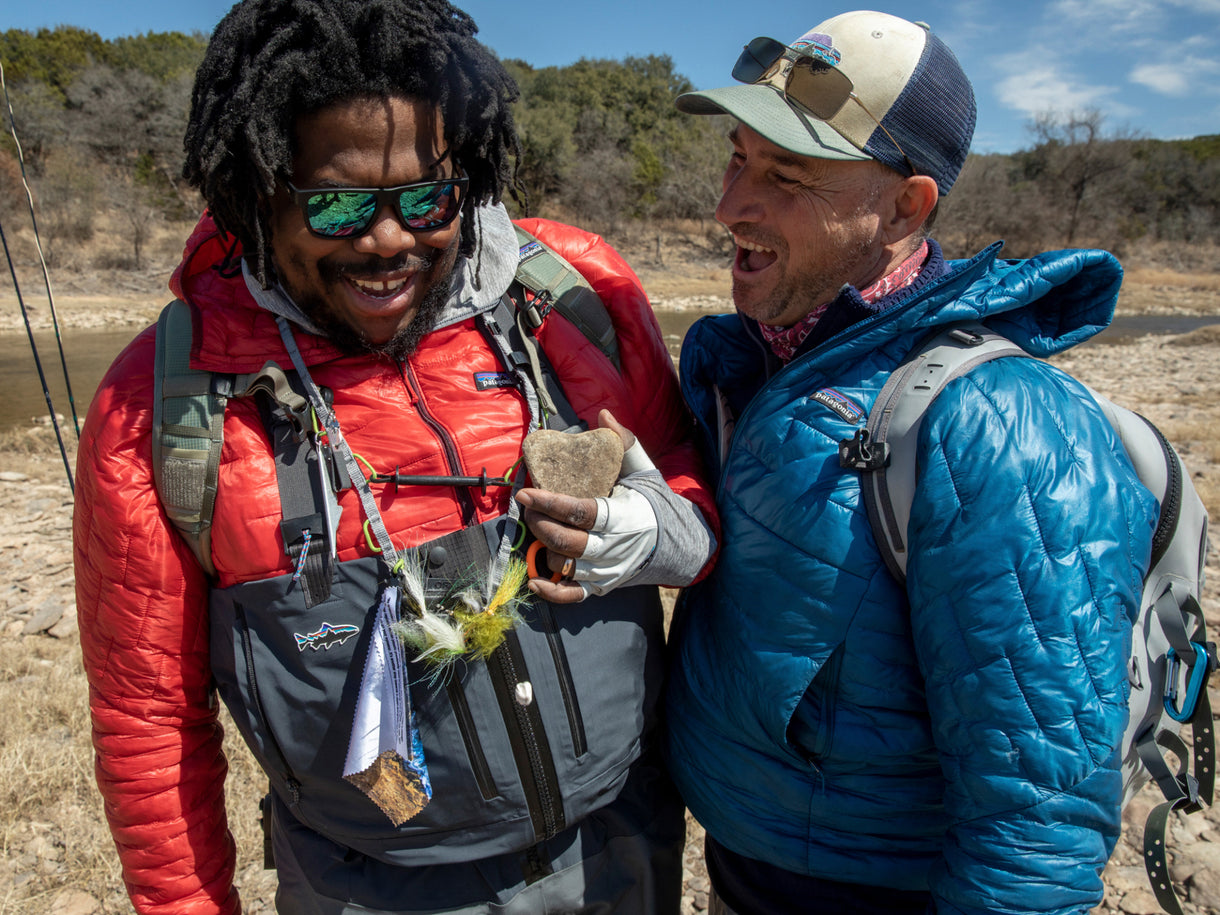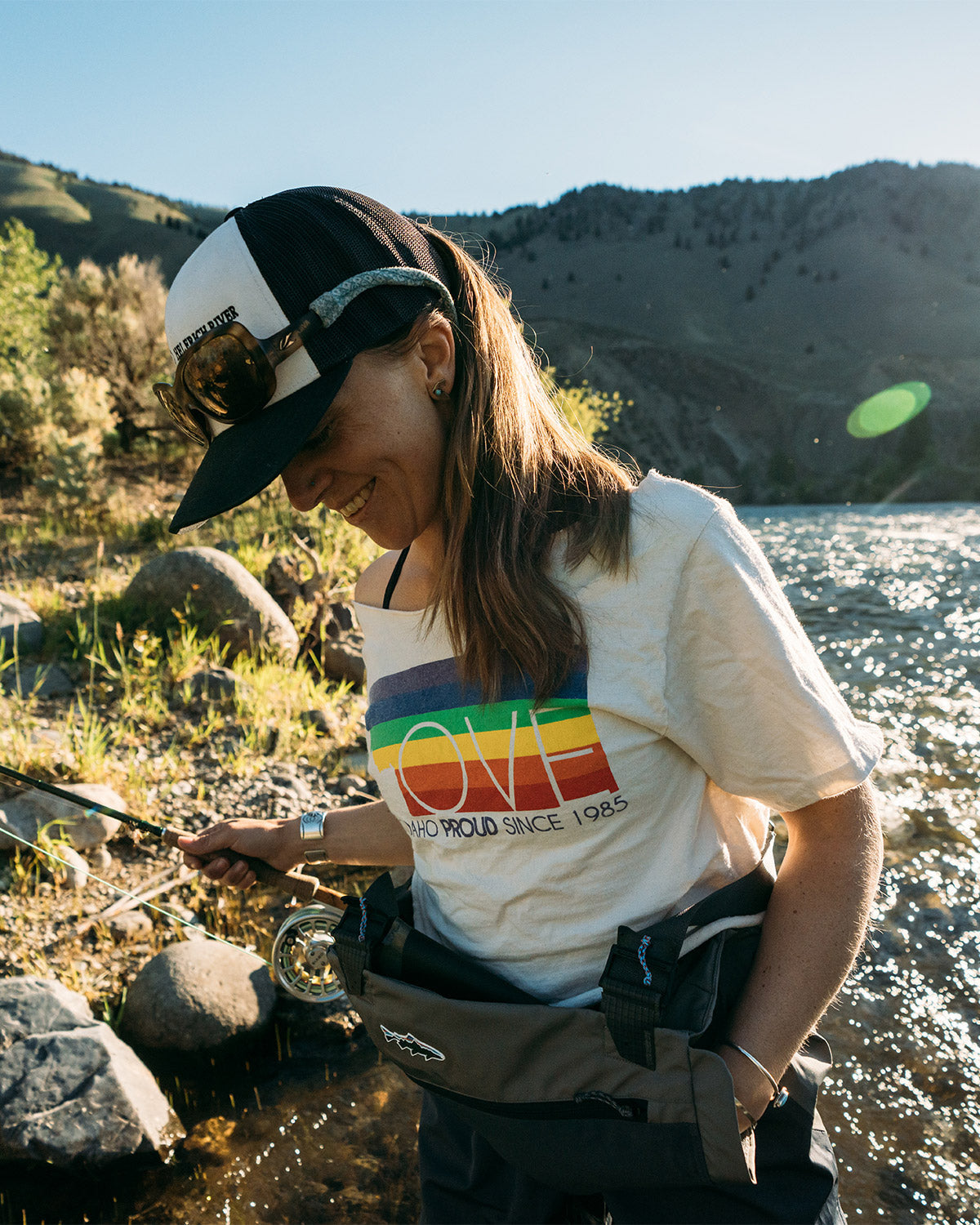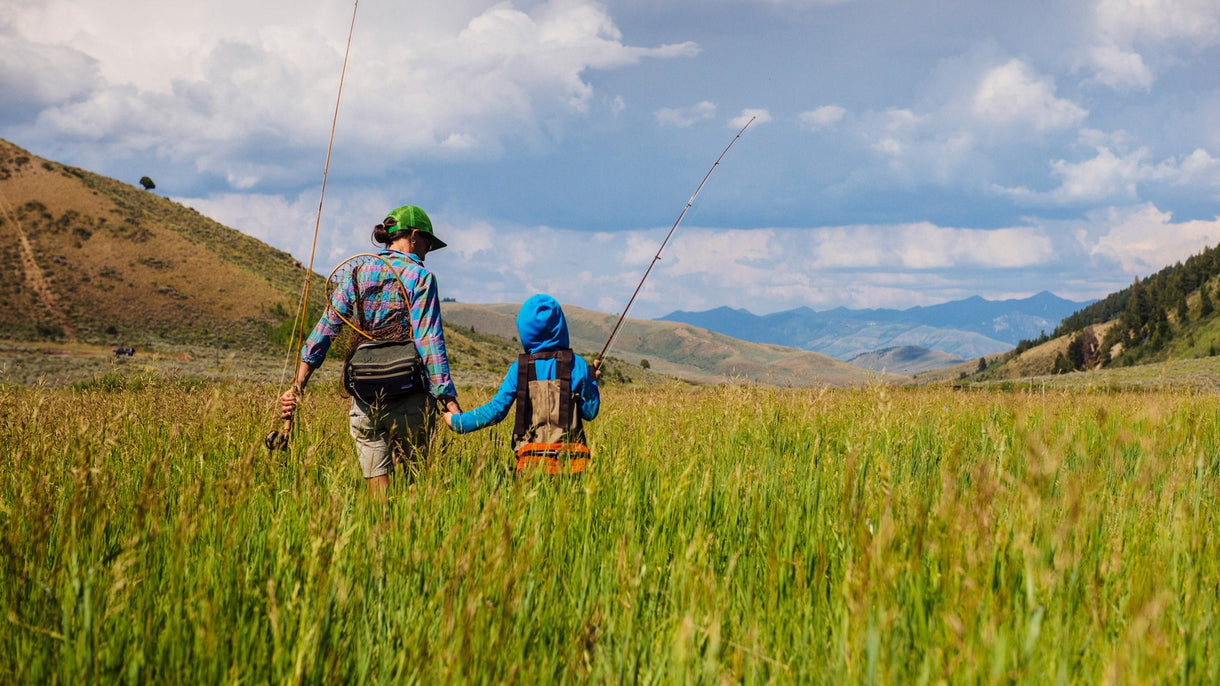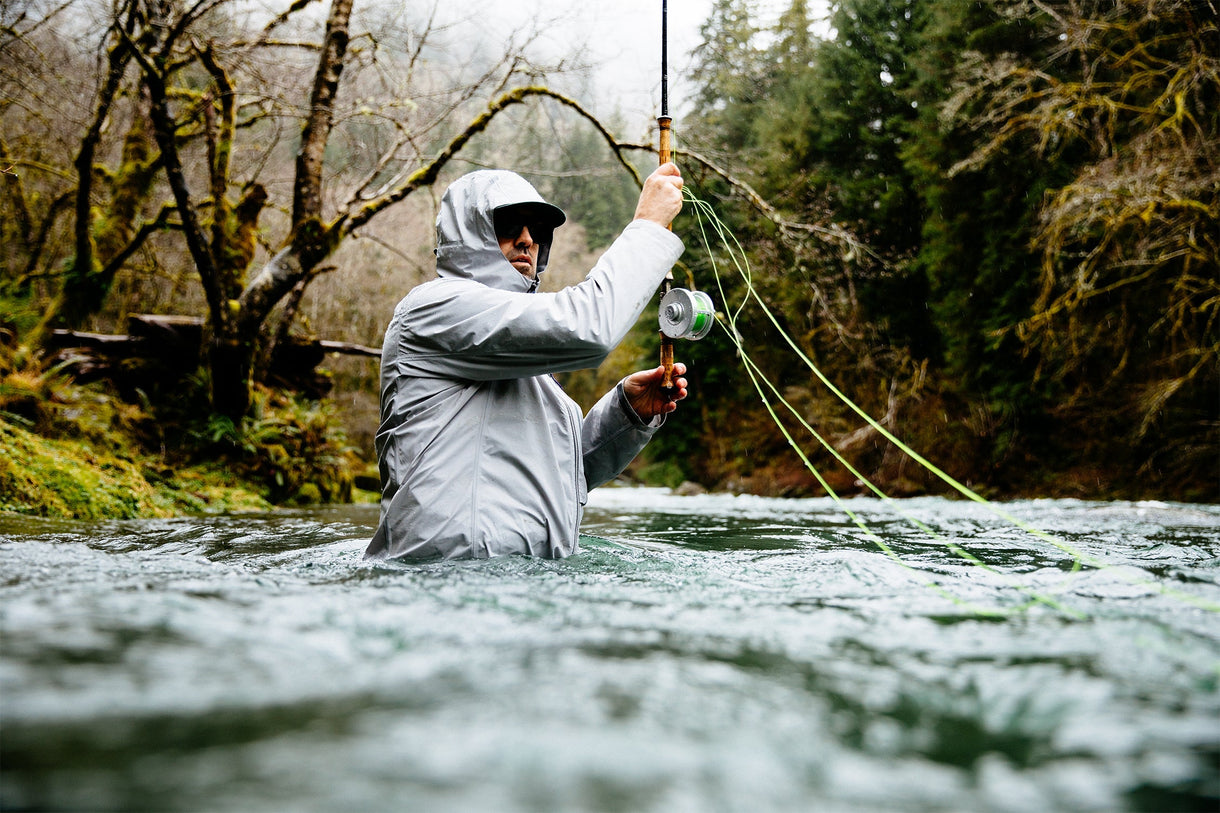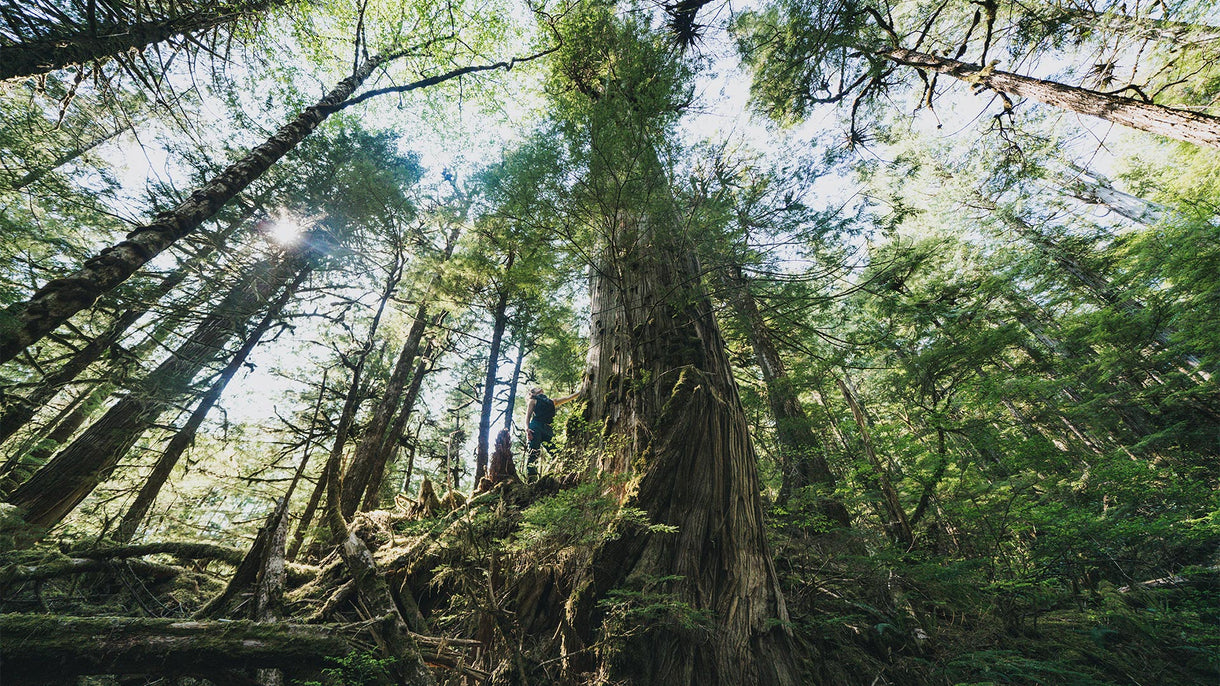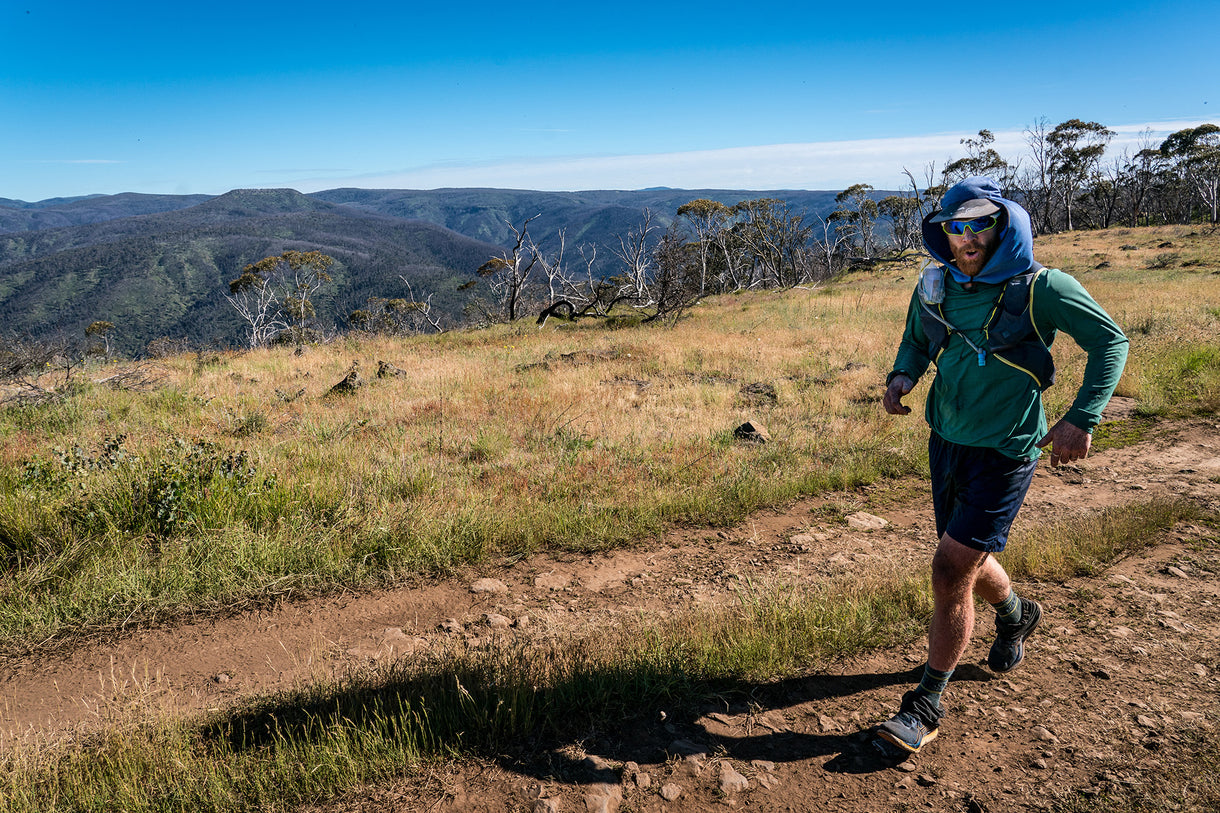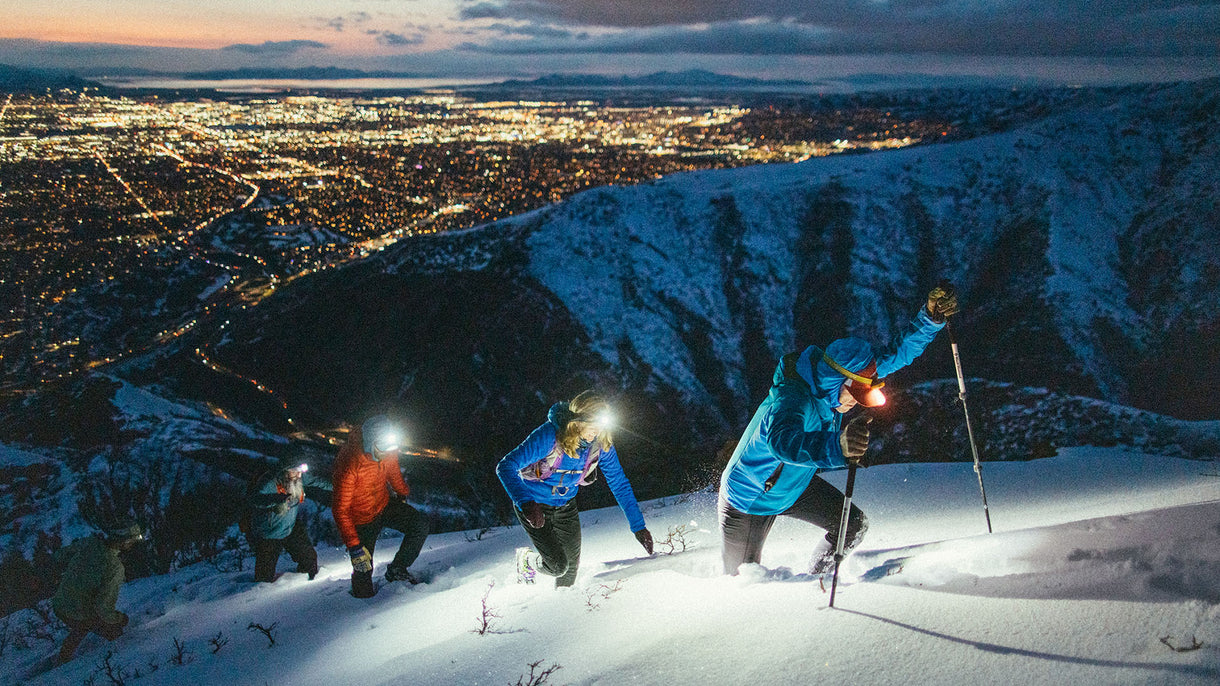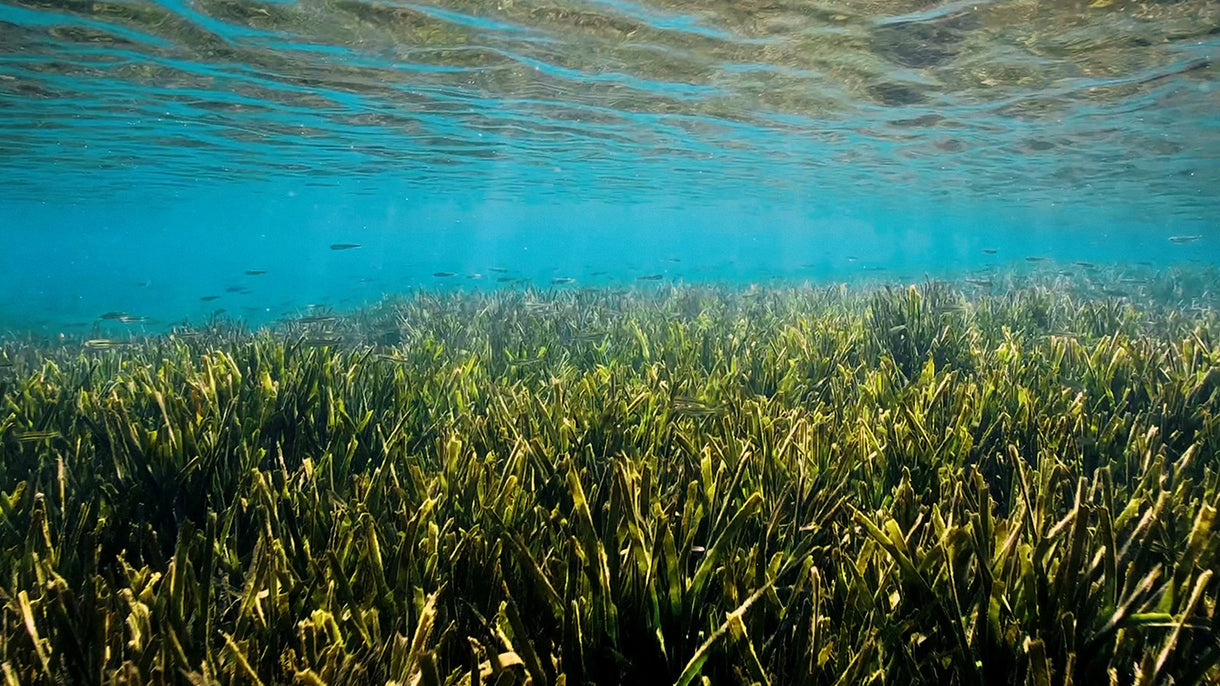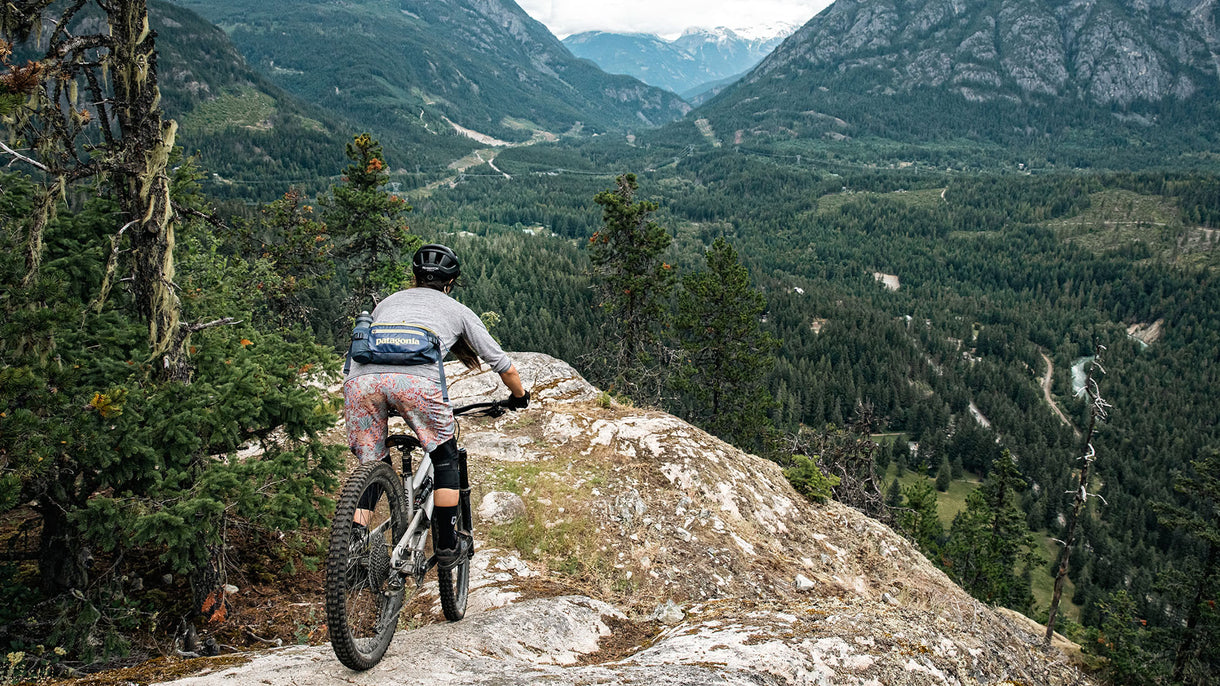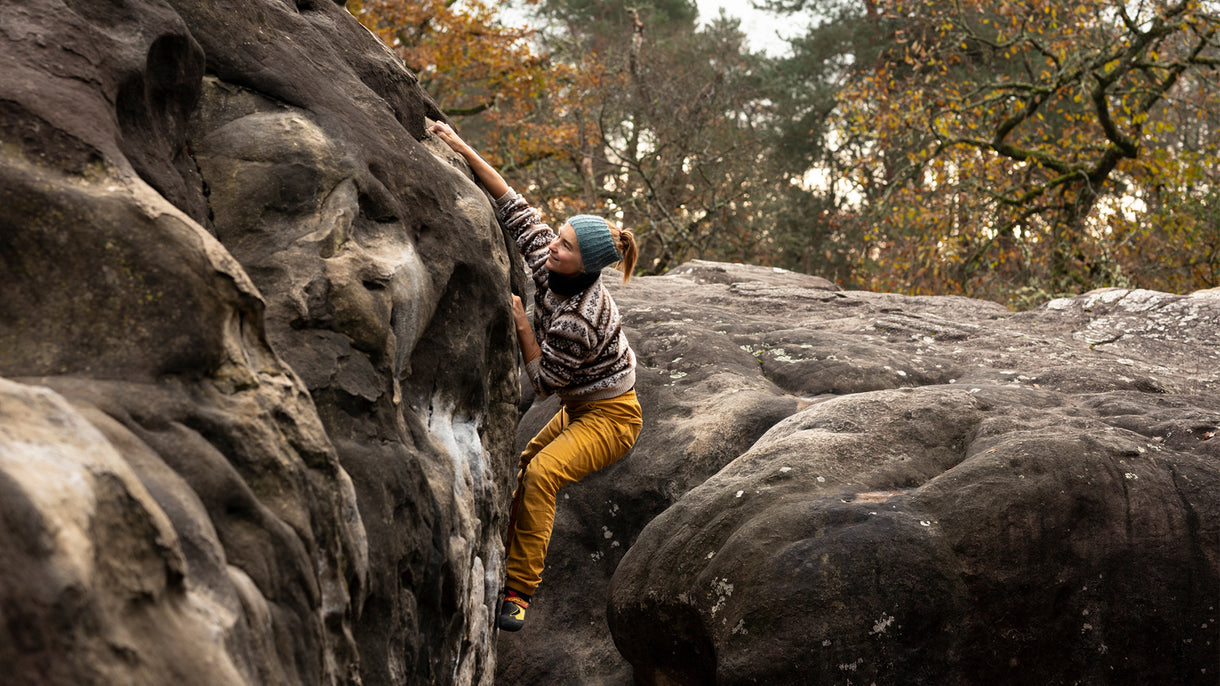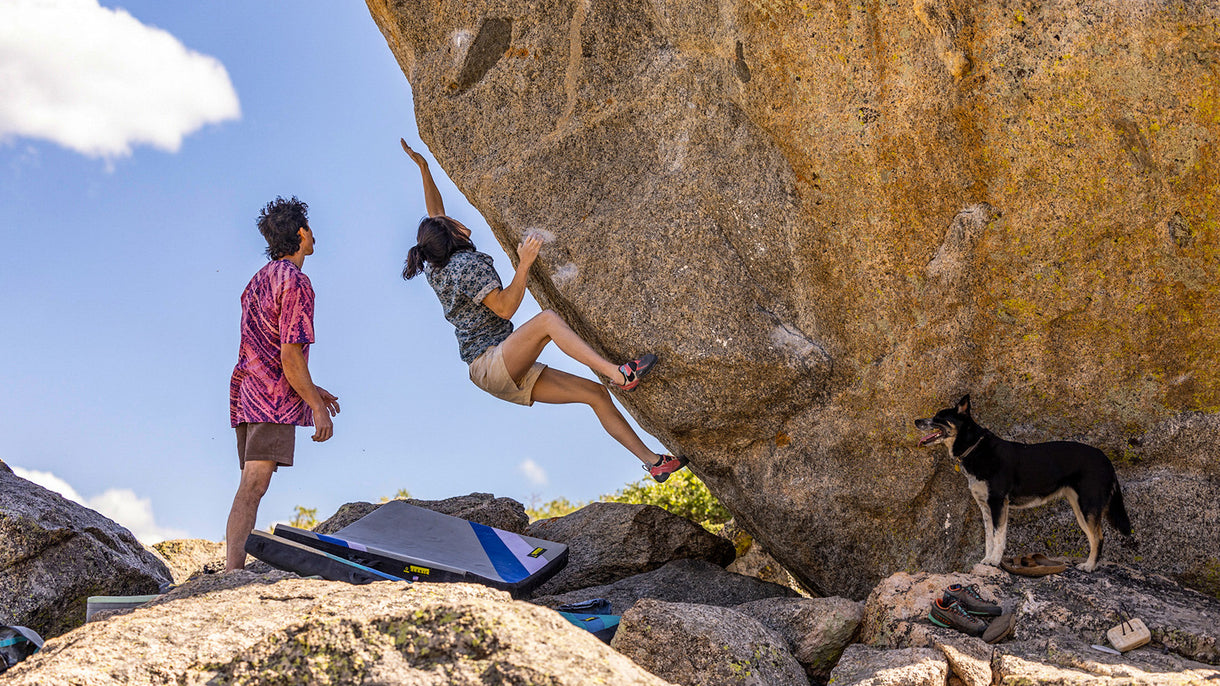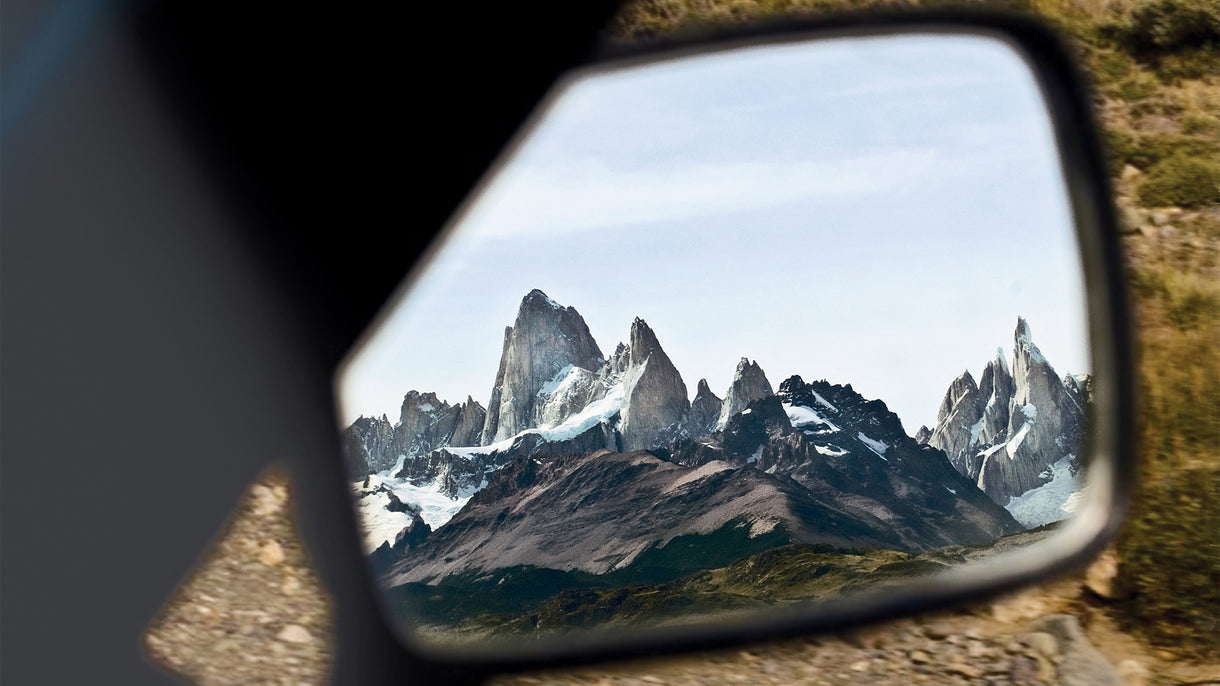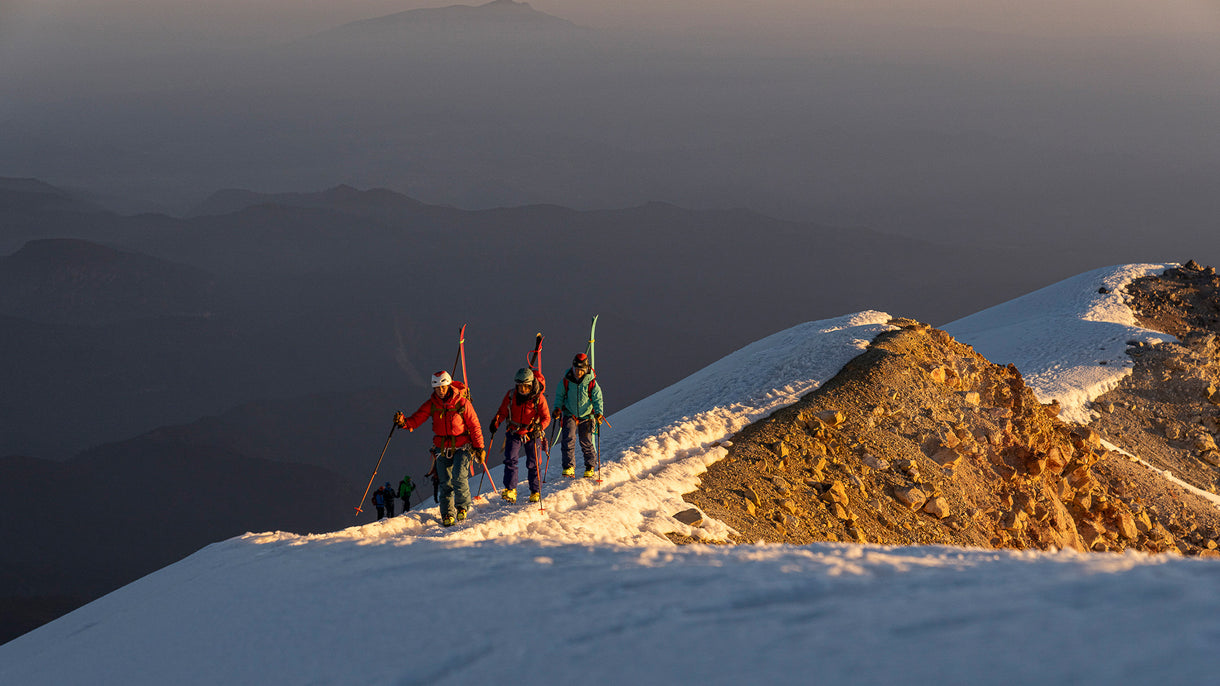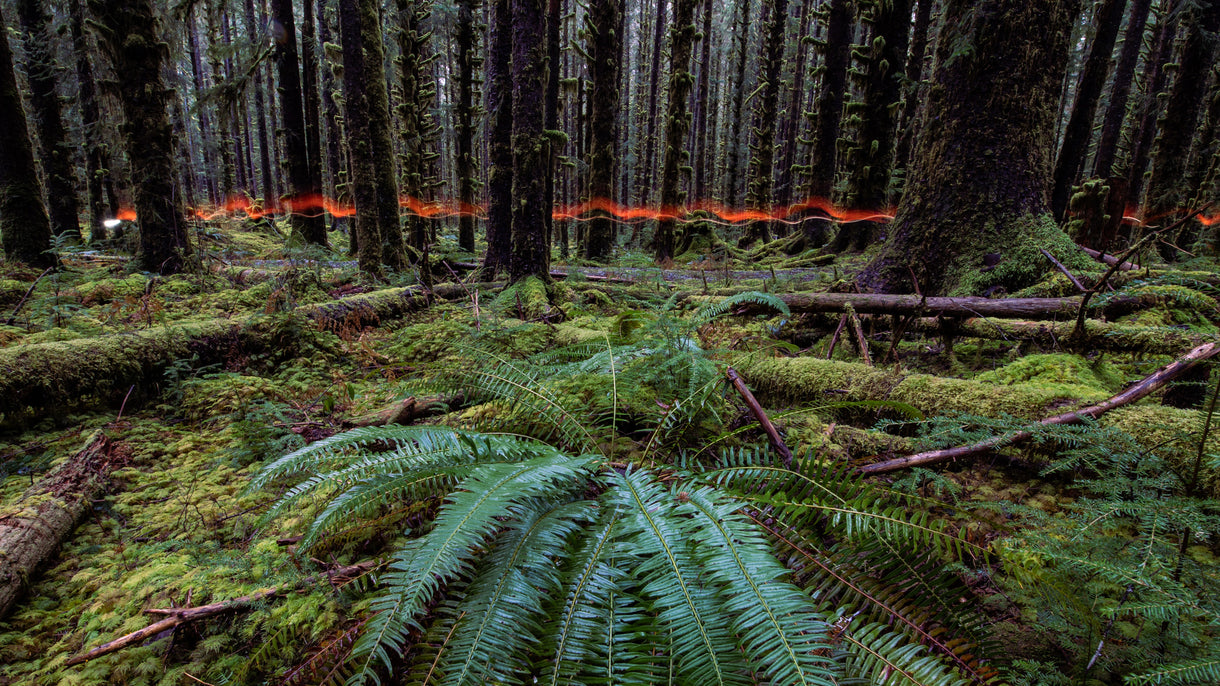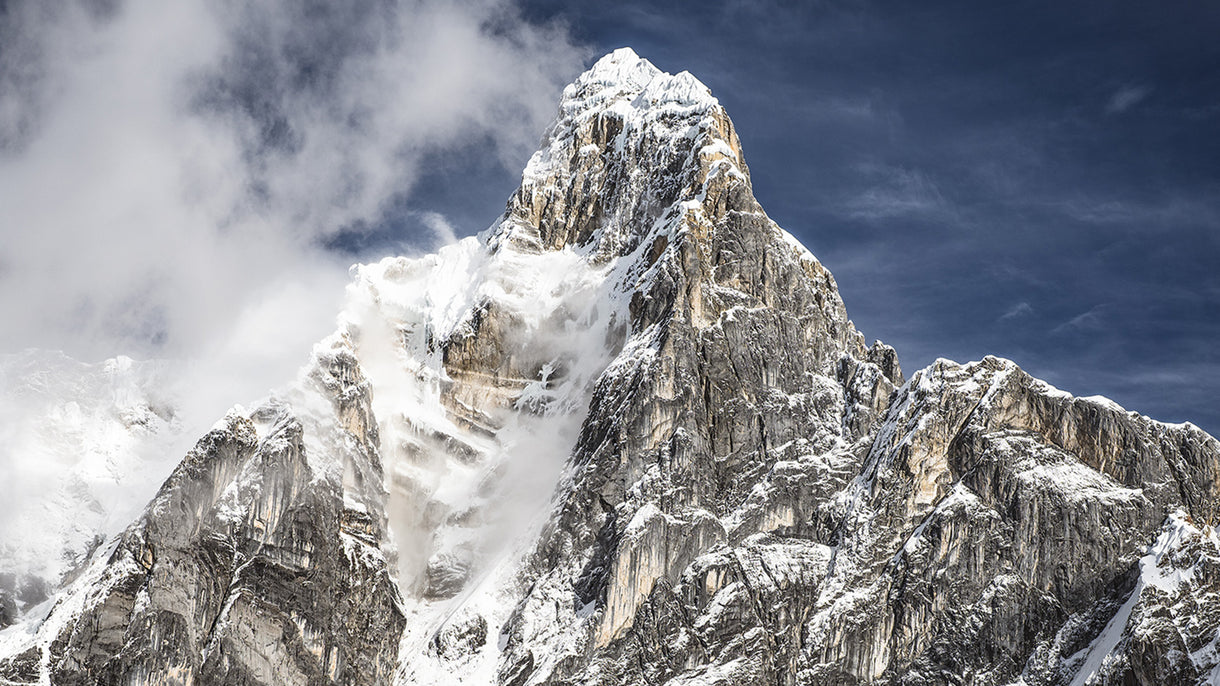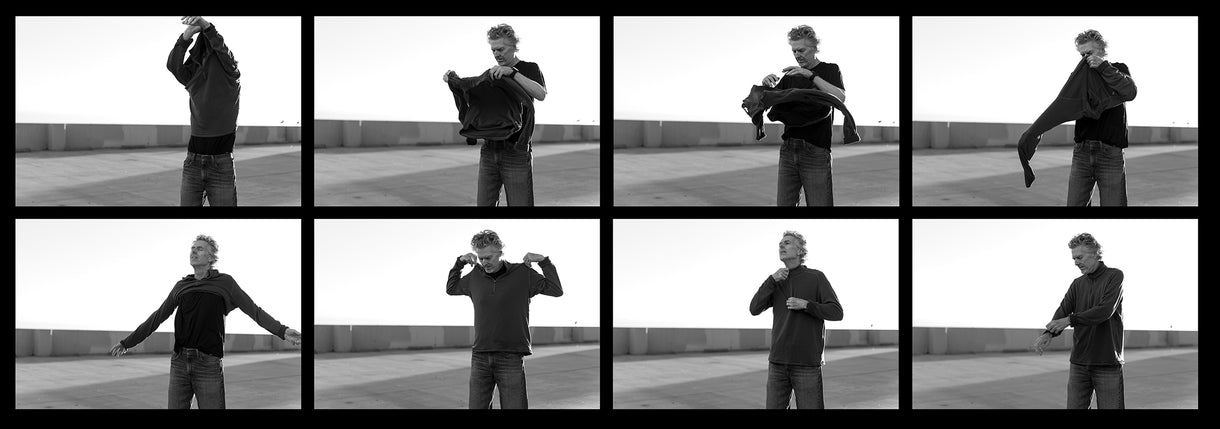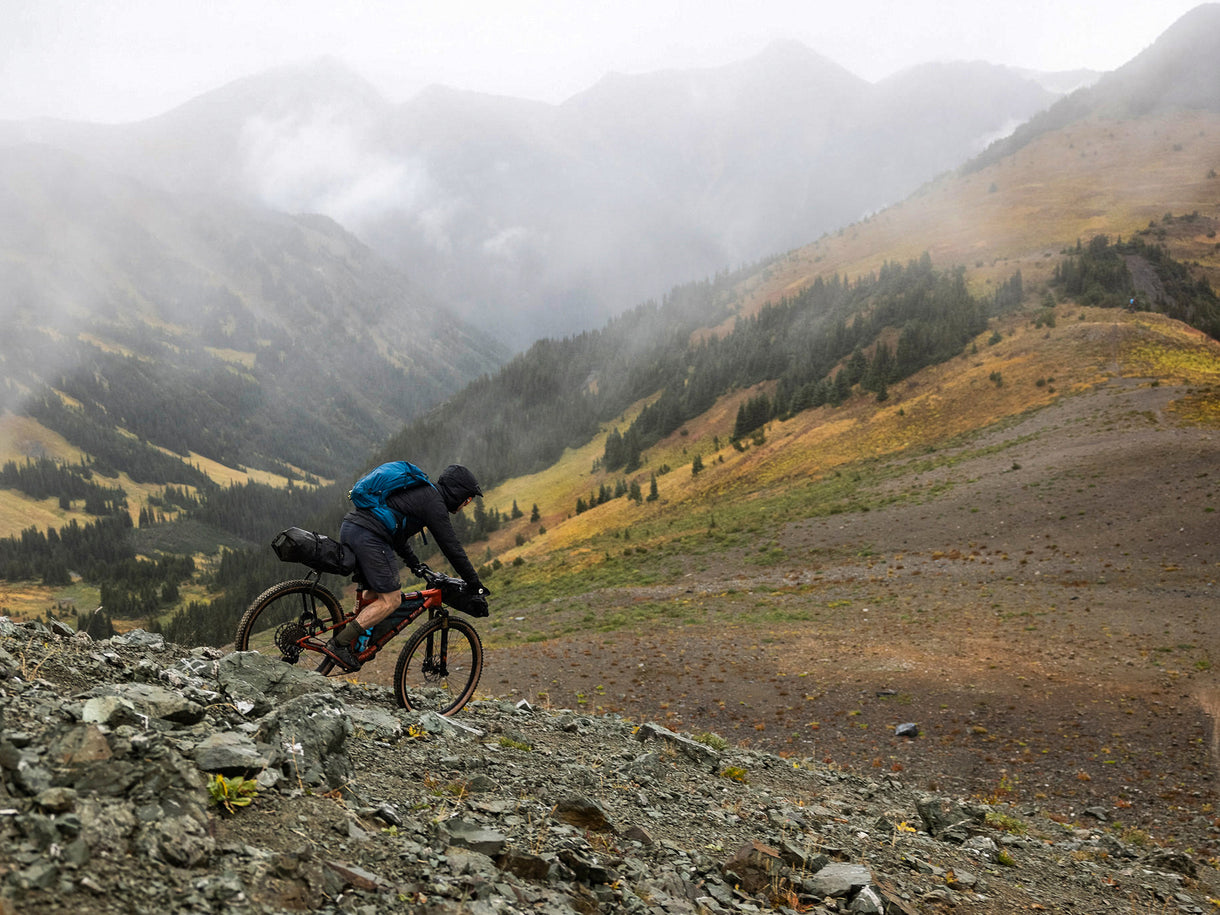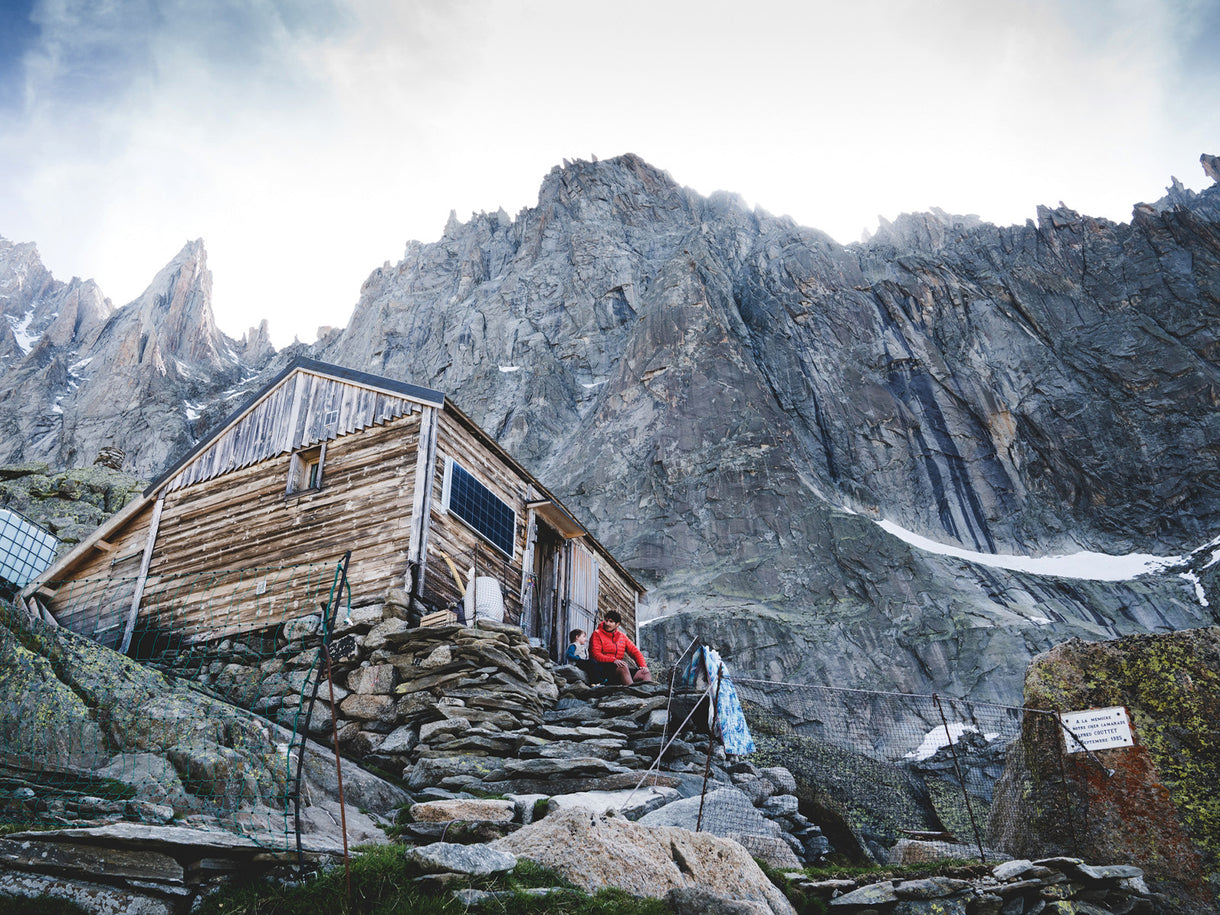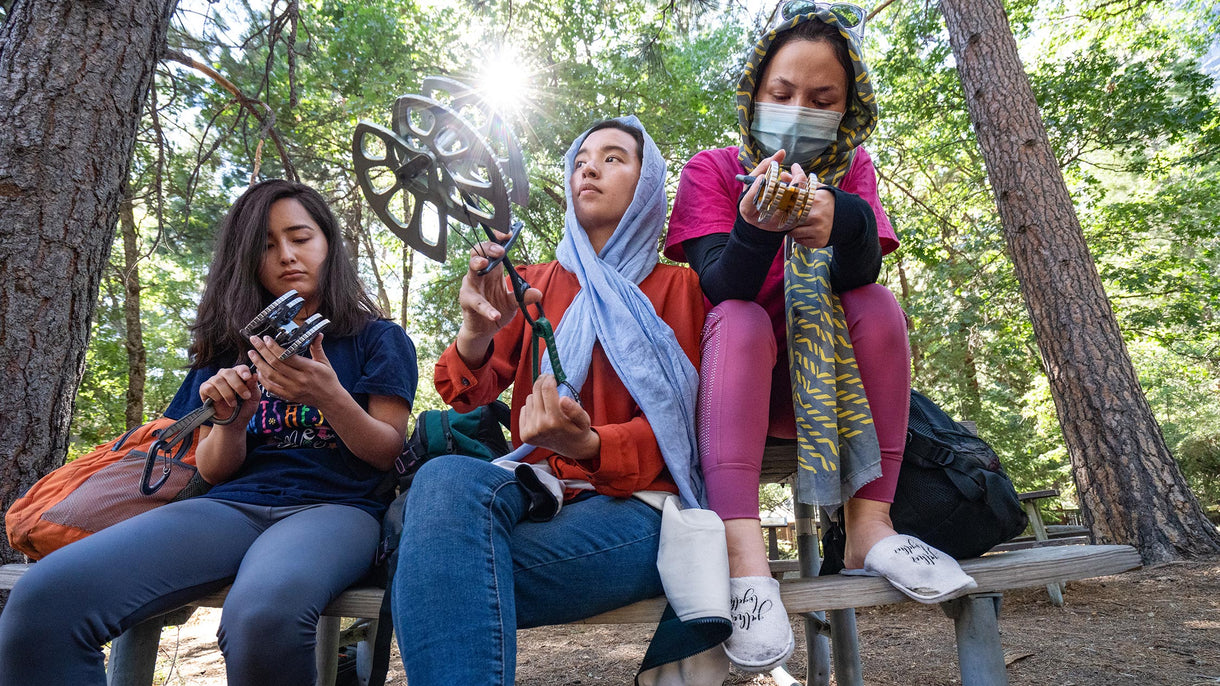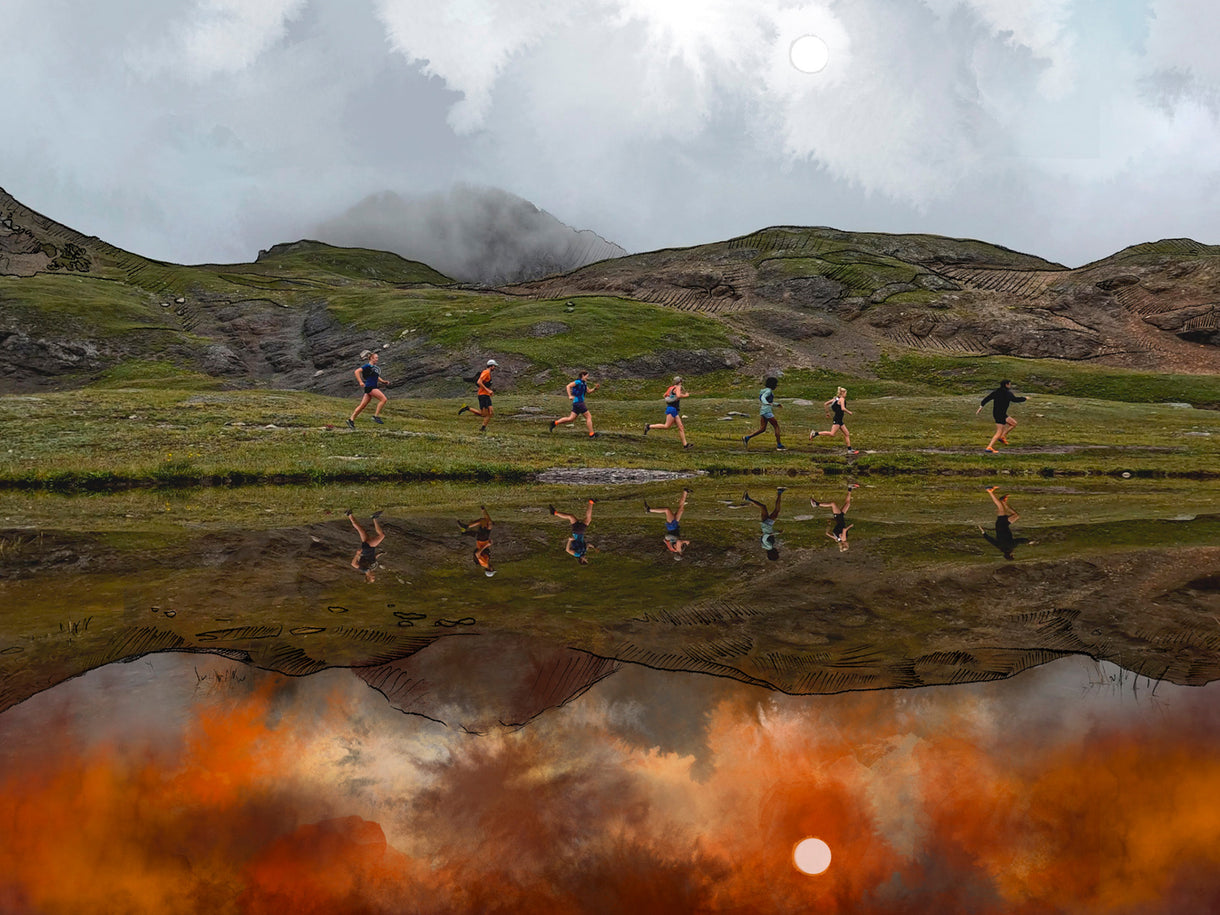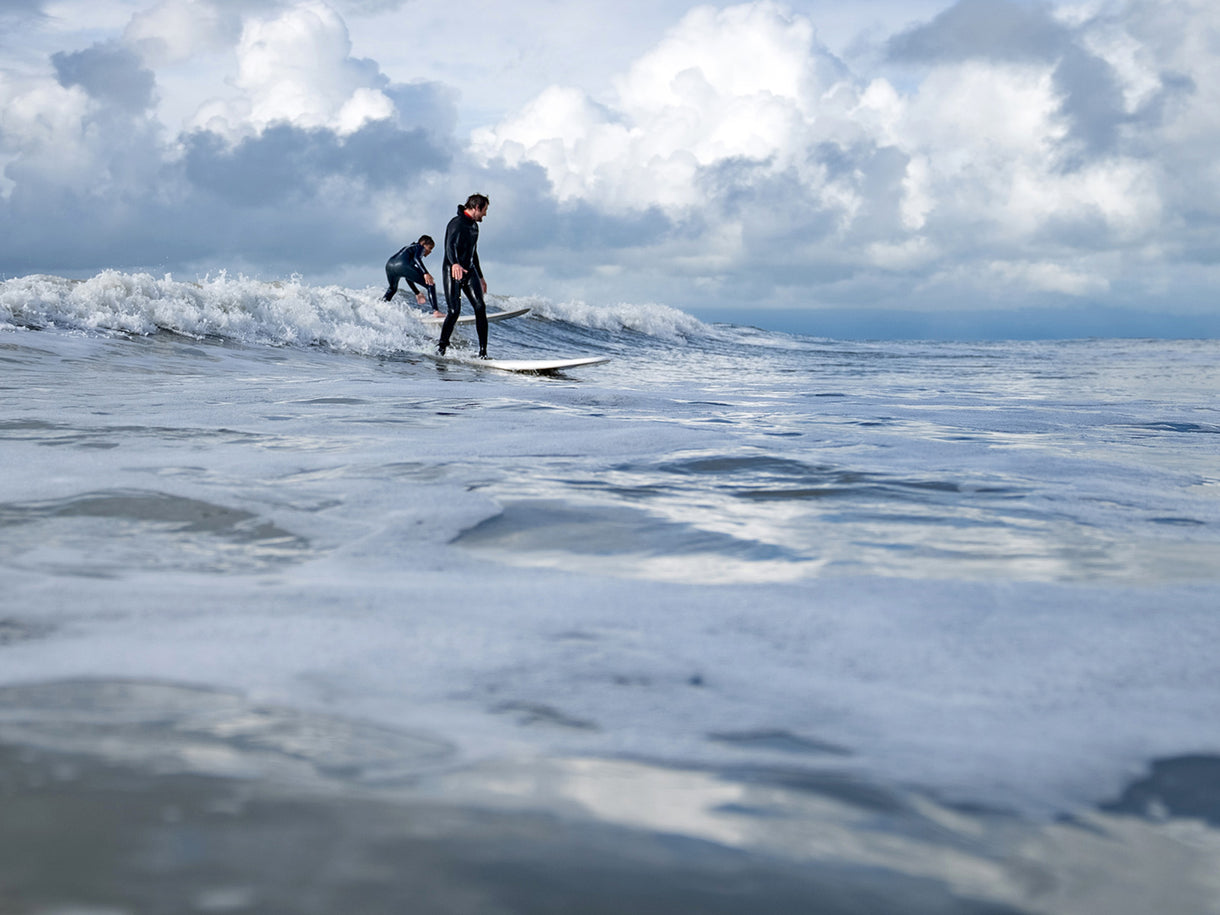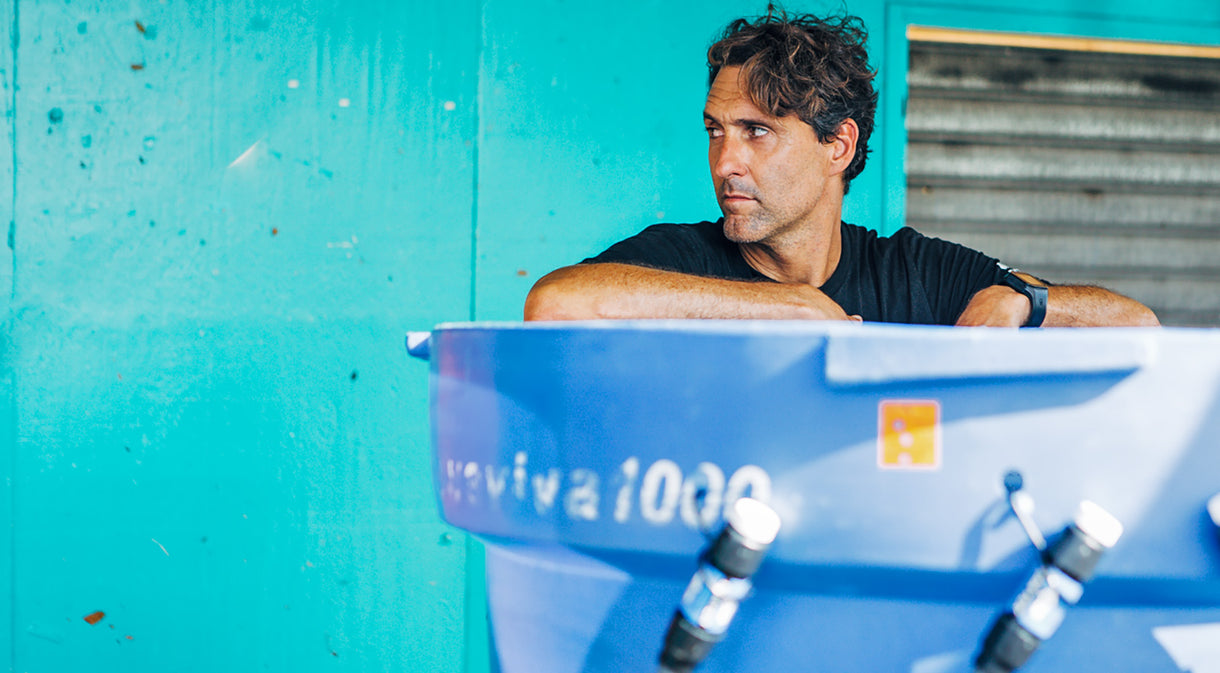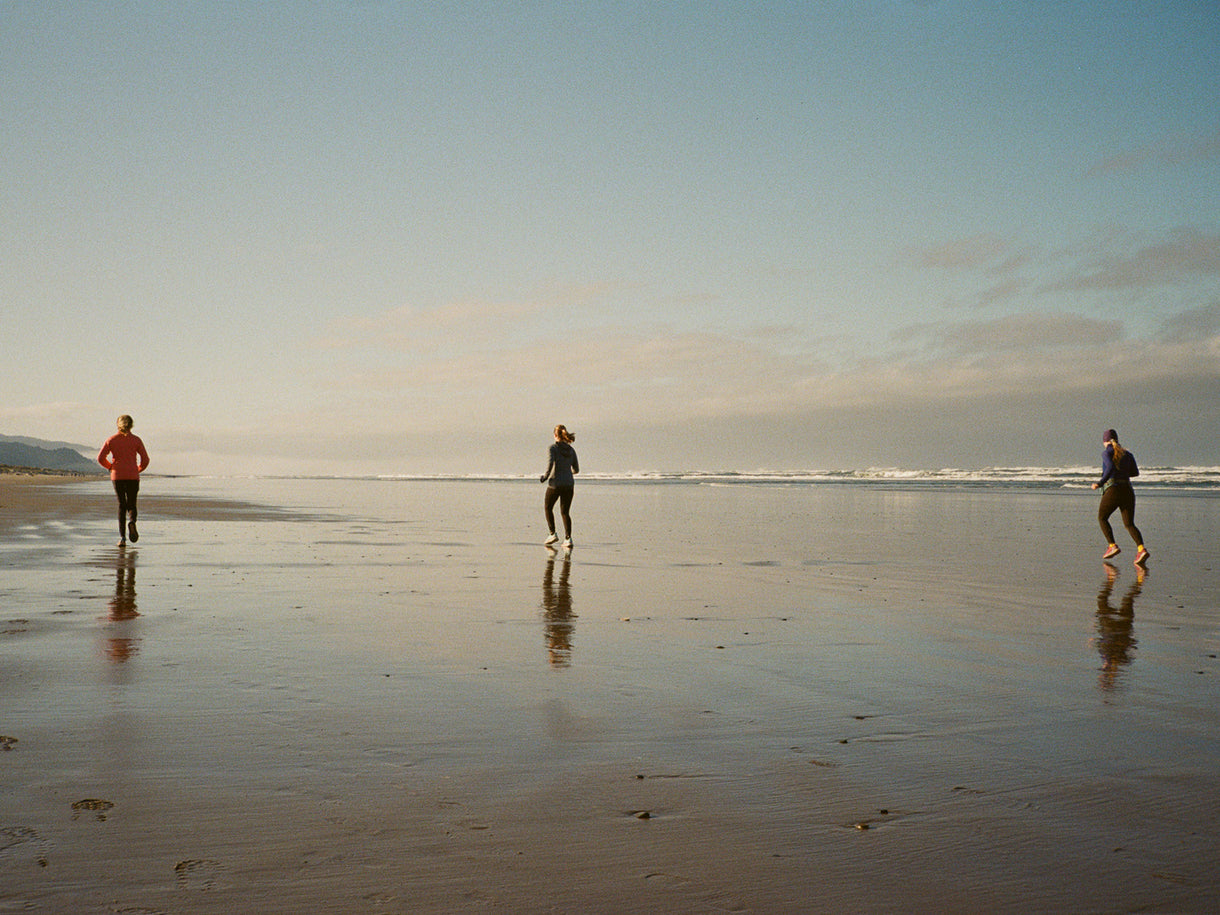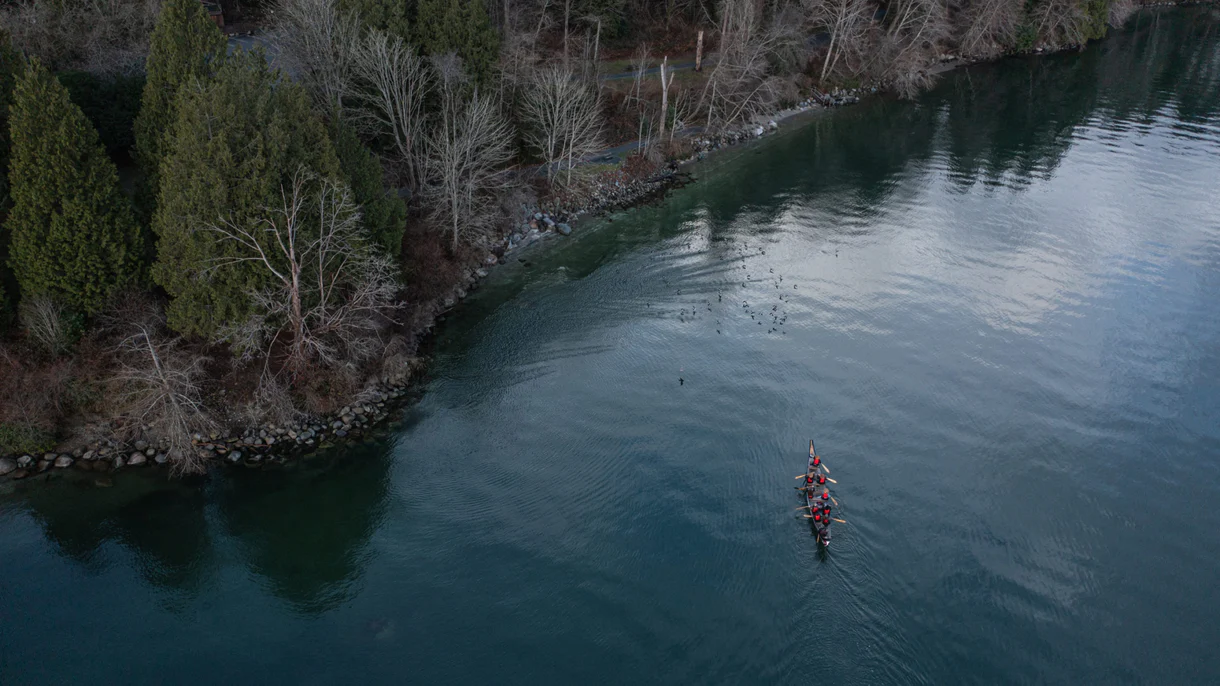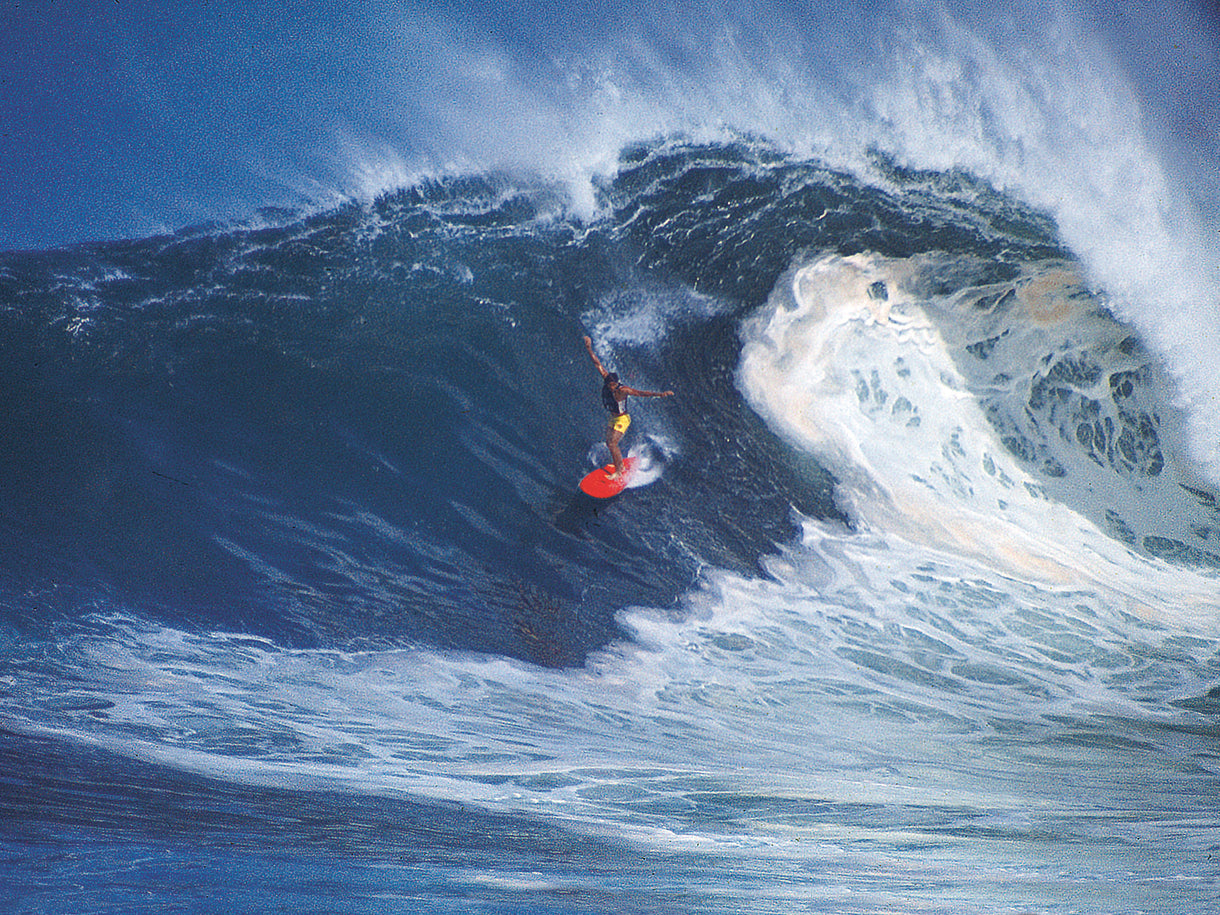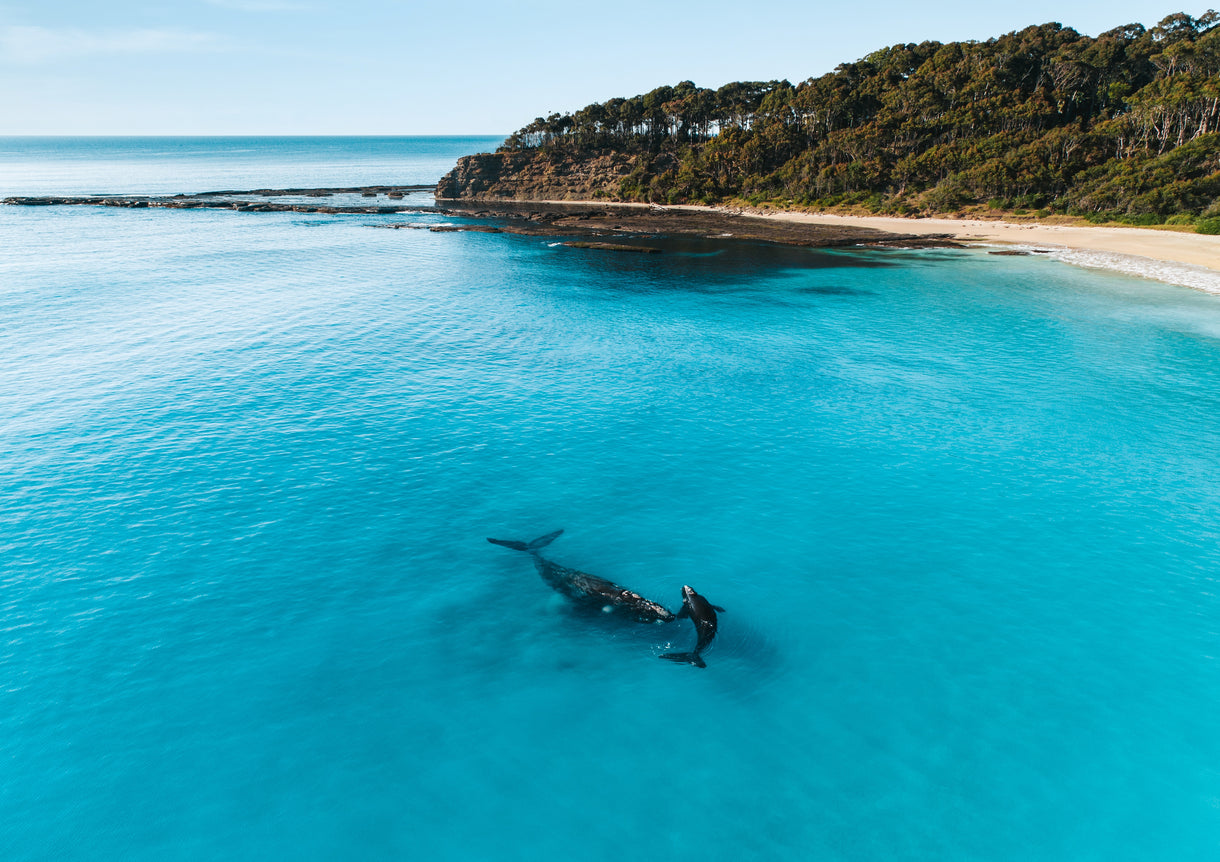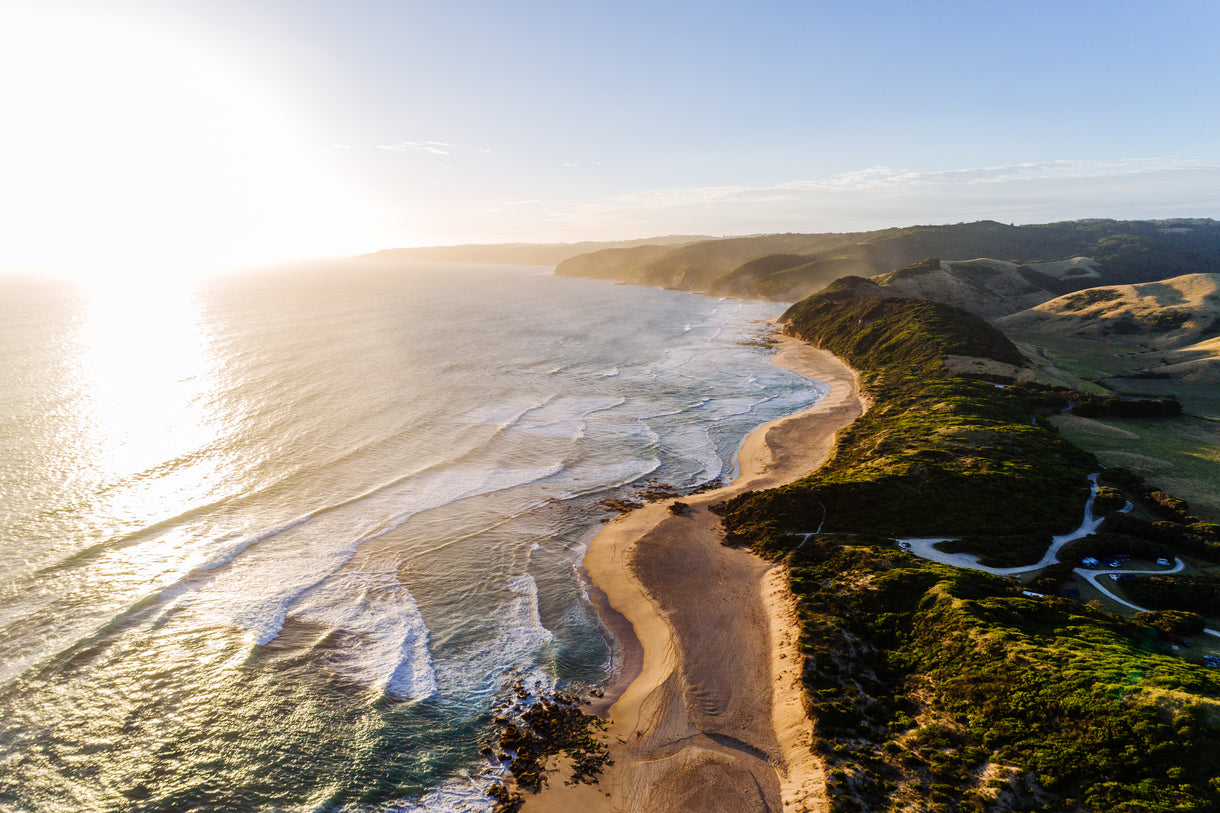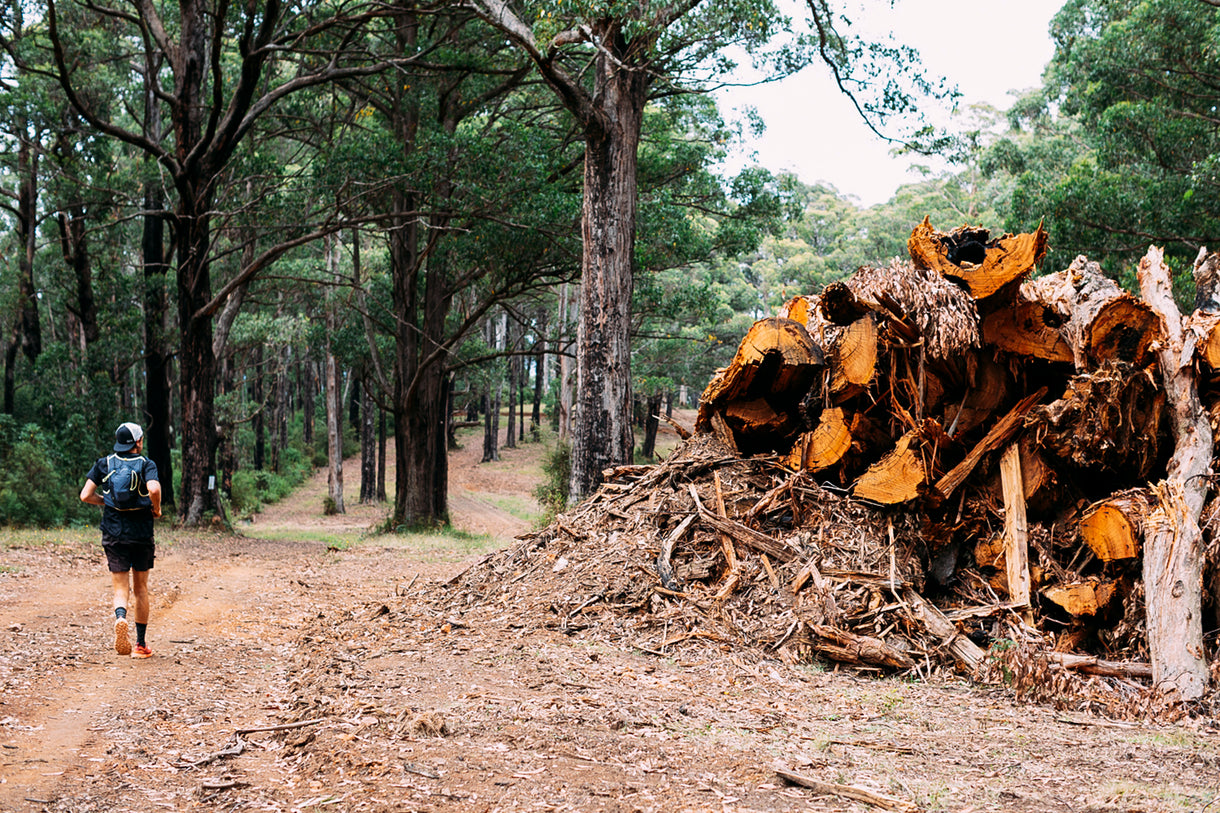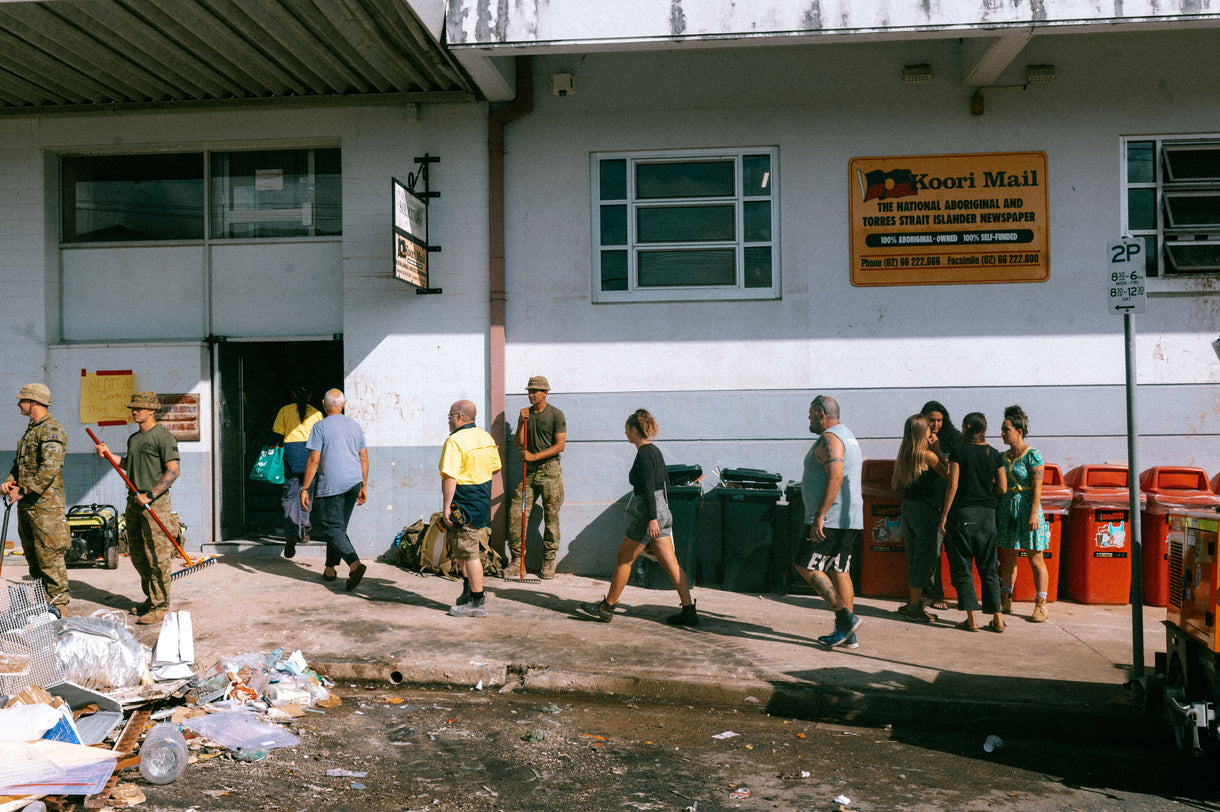How Liz Clark’s Tahitian residency opened a new chapter in her activist work.
After more than a decade at sea, Liz Clark dropped anchor in Tahiti in 2018 to finish her memoir Swell: A Sailing Surfer’s Voyage of Awakening. But, instead of blowing back to the open ocean after her book tour, Liz entered a new chapter, one that involves a home on land with her partner Tahui, six dogs, two cats, foster animals, occasional injured wildlife and a view of her sailboat, Swell, floating in the lagoon.
“When I was a nomadic sea traveler, I was observing different environmental issues in the places that I was sailing,” says Liz. “I felt my role at that time was to connect people back on land to the beauty and wonder I was experiencing, along with the troubling realities our oceans are facing, in hopes of motivating them to do better for the planet. But after writing Swell, I felt an urgency to expand my activism work in the face of our global ecological crisis and make an impact by acting locally. I hope that this next phase will also inspire others to take action in their own communities.”
Liz’s journey into making a difference in the Tahitian island community started when her beloved rescue cat, Amelia, was killed by a dog in 2018. After witnessing the suffering and overpopulation of stray dogs and cats on the island, Liz wanted to do something to help in Amelia’s honor. She began going door to door with free medicines for dogs and showing the community how to treat animals with advanced mange (one of the main reasons dogs are abandoned in the community). “It’s slow but it’s effective,” she says. “It’s wonderful to see the dogs recover and the happiness and empowerment it brings their owners.”
 “Before COVID-19, we were finding families to adopt strays on the island and bring them back to the US,” says Liz Clark. “Which we will resume when tourism gets going again.” All photos courtesy of Liz Clark.
“Before COVID-19, we were finding families to adopt strays on the island and bring them back to the US,” says Liz Clark. “Which we will resume when tourism gets going again.” All photos courtesy of Liz Clark.
So, she and Tahui started talking to friends in the local surf community. They started A Ti’a Matairea Island Protectors –meaning “stand up for your island” in Tahitian – with a group of young surfers, community Elders and others looking to make a difference and put their focus on environmental protection and animal welfare. Their goal is simple – create positive change in French Polynesia through staying connected with the local community.
 Liz serves as a spokesperson for the nonprofit she helped create, here she is educating a local classroom on plastics: “At first I didn’t feel comfortable taking a leadership role because I’m not from [Tahiti]. But our team reassured me. I aim to facilitate the needs and desires of the local community in protecting their environment.”
Liz serves as a spokesperson for the nonprofit she helped create, here she is educating a local classroom on plastics: “At first I didn’t feel comfortable taking a leadership role because I’m not from [Tahiti]. But our team reassured me. I aim to facilitate the needs and desires of the local community in protecting their environment.”
Their first major environmental project began after a young fisherman came to the group and was frustrated with the need to protect the reef and fishing area near his home from irresponsible anchoring practices. So, they discussed the issue at their next community meeting.
“Every year there are more and more boats that come through, and if you don’t know the area, there’s a chance that you might drop your anchor on live coral,” she says. “The fishermen were getting angry, and there had even been violence over it.” But before they could turn this initiative into something real, they needed to drum up some good trouble.
“There’s a big [annual] canoe event where hundreds of boats come into the bay at once, and it’s very destructive,” she says. “We organised a protest, painted a big sail and invited the whole community to join us in the water. We also made a short video for social media that explained the situation and showed the area we were asking boats to avoid. It got the attention of our local government and the mayor who came to us for help to find a solution.”
 “We do a lot of beach cleanups and education in the local schools about trash, trash disposal and plastics,” Liz says.
“We do a lot of beach cleanups and education in the local schools about trash, trash disposal and plastics,” Liz says.
 The Island Protectors and their beach-cleanly bounty.
The Island Protectors and their beach-cleanly bounty.
Combining the anglers’ local knowledge with the desires of the community and Liz’s experience as a sailor, they mapped out safe, sand-bottom zones around the island. After two years of working out the details and wading through the bureaucratic waters of French Polynesia, the anchorage zones were signed into law in August 2021 and legally added to the navigational charts. “They will hopefully help protect and reduce the damage done to the coral,” Liz says.
Next on their agenda is establishing a network of Marine Protected Areas (MPA) to prevent overfishing. “Before colonisation, Tahitians used a system called Rāhui – which temporarily prohibited fishing and harvesting in certain areas – to regulate their marine resources that broke apart over time,” says Liz. “To get this going, we wanted to engage the fishermen, first. If the protected areas don’t come from those who use and depend on the resources, it’s just not going to work. We wanted to know if they even desired to do this.” With the help of the Department of Marine Resources, the nonprofit put together a questionnaire for the island’s fishermen. They started off going district by district and door to door to gauge the temperature for the MPAs and gather information about which areas should be protected. “So far about 90 percent of the fishermen want to do something about overfishing and establish some sort of Marine Protected Area in their region. So, we’re proposing a combination of that traditional Rāhui system using modern tools. But it’s the fishermen and women who will decide.
“It’s exciting, I feel like I’m holding real ocean conservation work in my hands.”
 Just a little post-surf mango with Liz and Tahui’s dog, Sister, for good measure.
Just a little post-surf mango with Liz and Tahui’s dog, Sister, for good measure.
For Liz, this is the natural growth seeded from her earlier life of sailing and inspiring change. “When I was at sea, I saw myself as this global ambassador for environmental issues, and I was doing my best to live my values and make the change happen from within. Now, I’m having fun seeing real positive impacts developing through this nonprofit work at the local level. It’s hard and less glamorous than sailing, but equally challenging. I know there will be a time when I take to sea life again, but for now, it feels like I’m where the planet needs me the most.”
Please visit A Ti’a Matairea Island Protectors to learn more and support their work.
Banner image – A Ti'a Matairea Island Protectors standing up for their local coral reefs and fishing zones. All photos courtesy of Liz Clark.
____________________________________________________________________
Author Profile

Morgan Williamson
Patagonia. He previously worked as senior editor
at Stab Magazine and is an enjoyer of various
activities. Listening to new-age country music is
not one of them.
